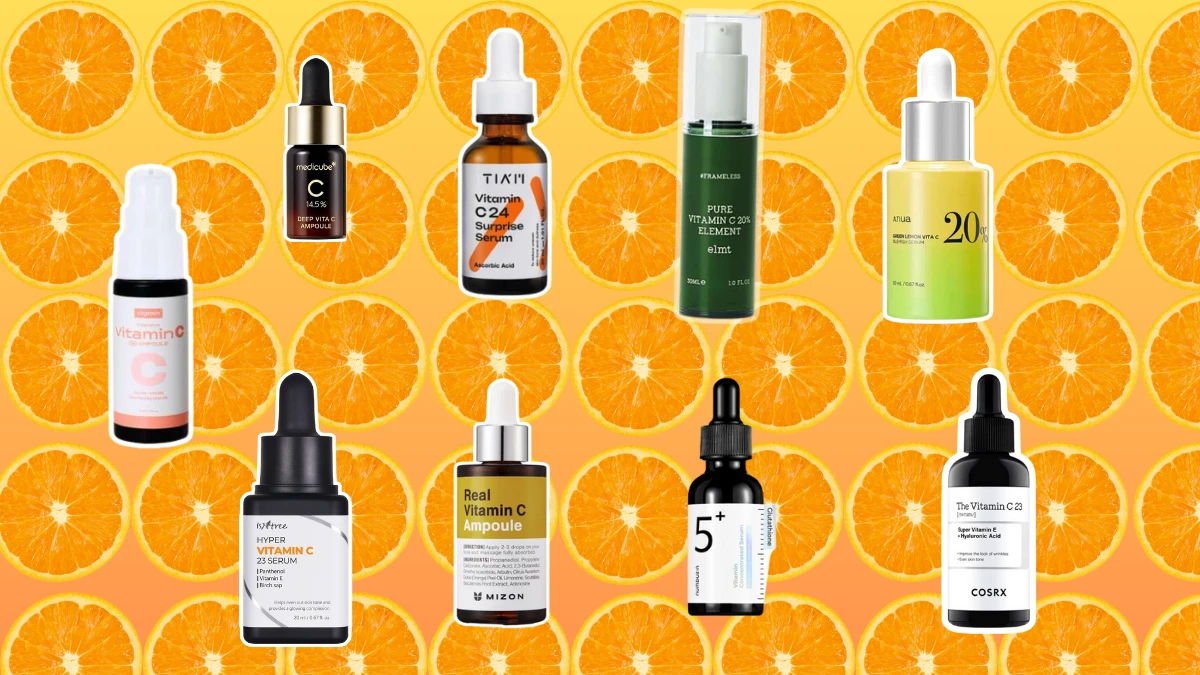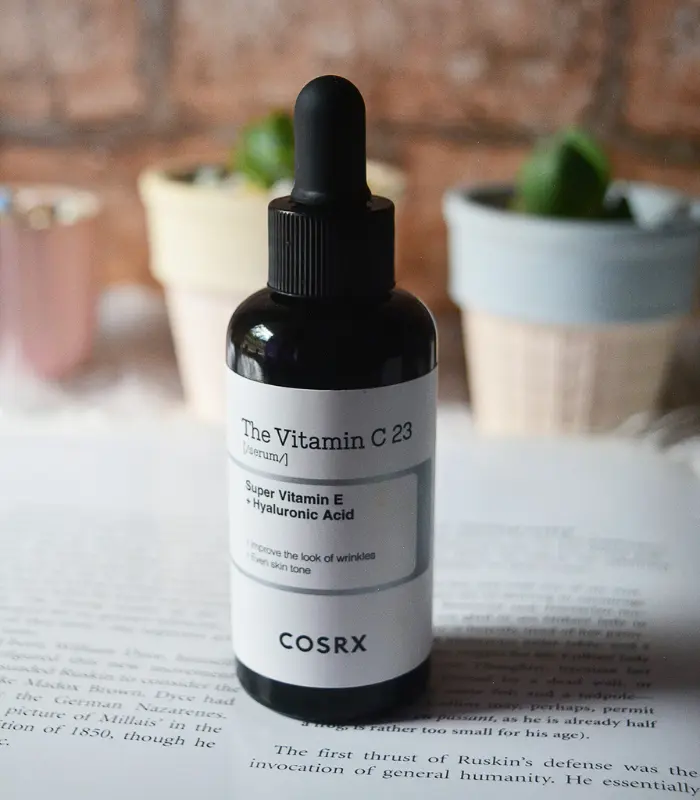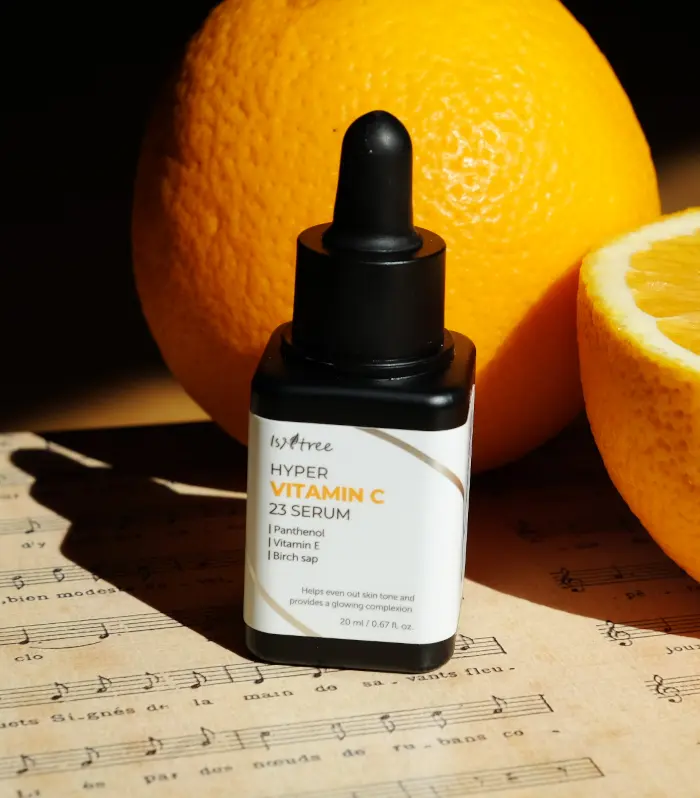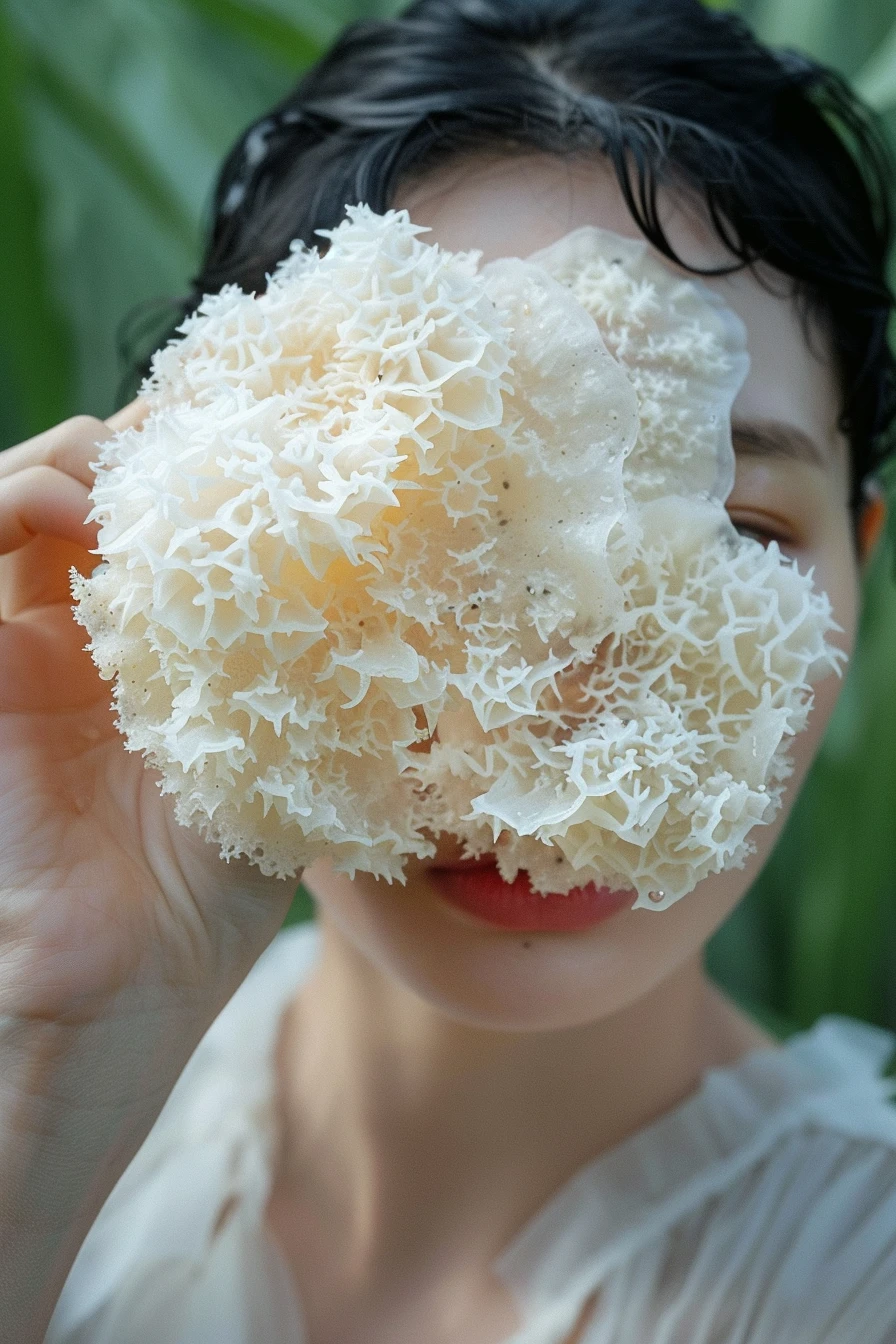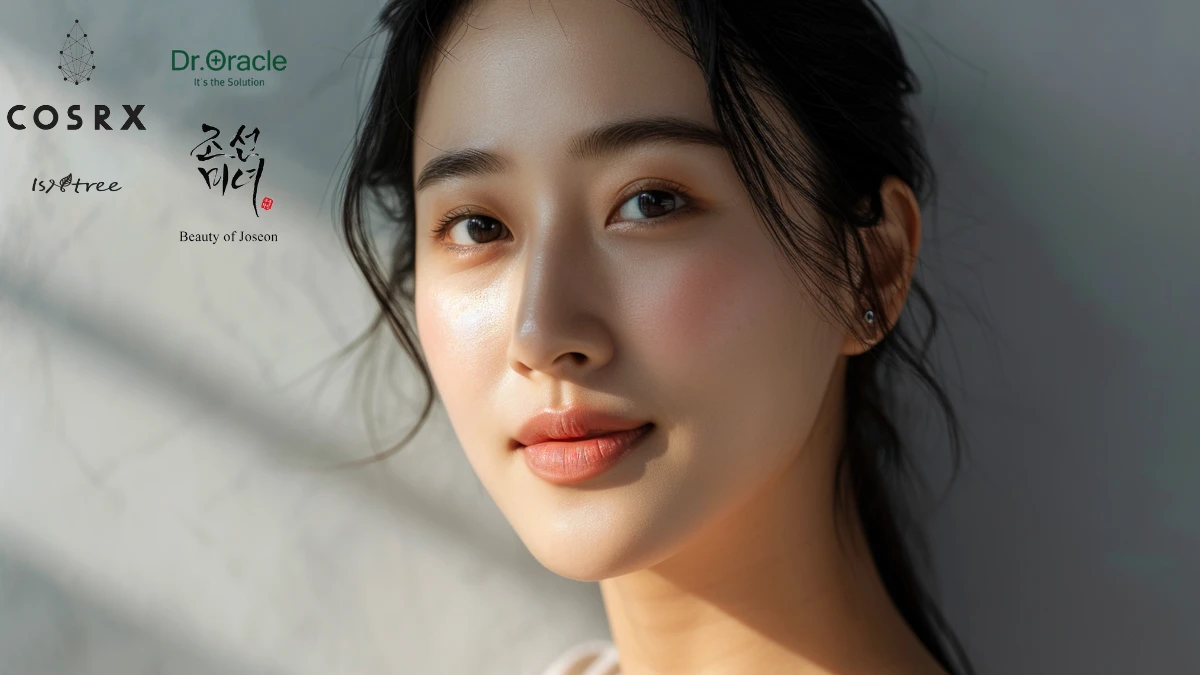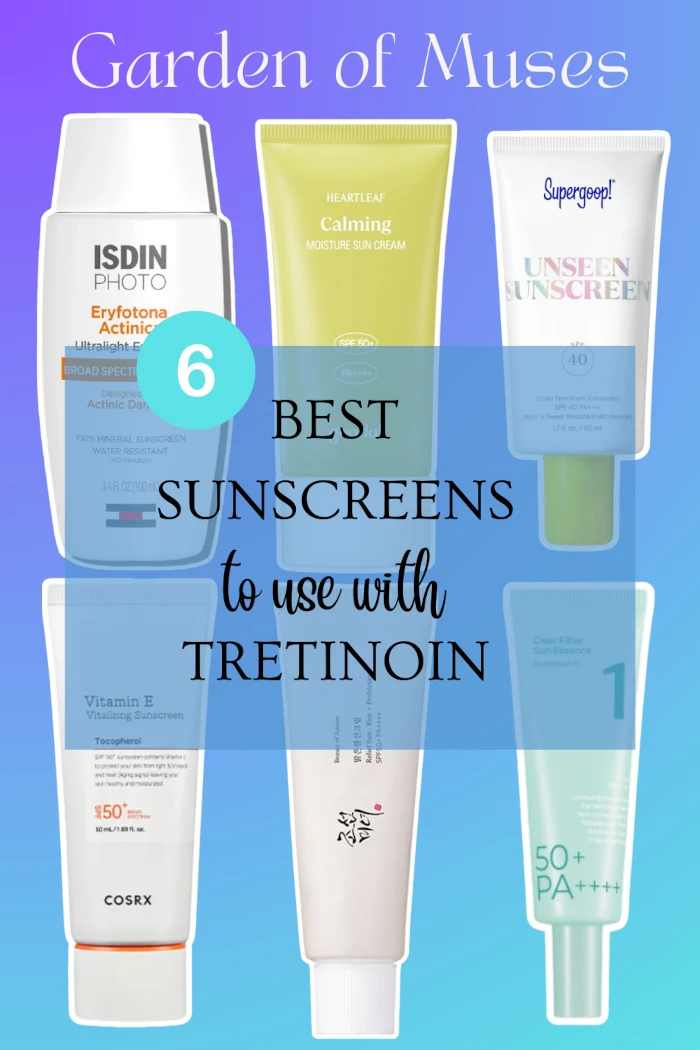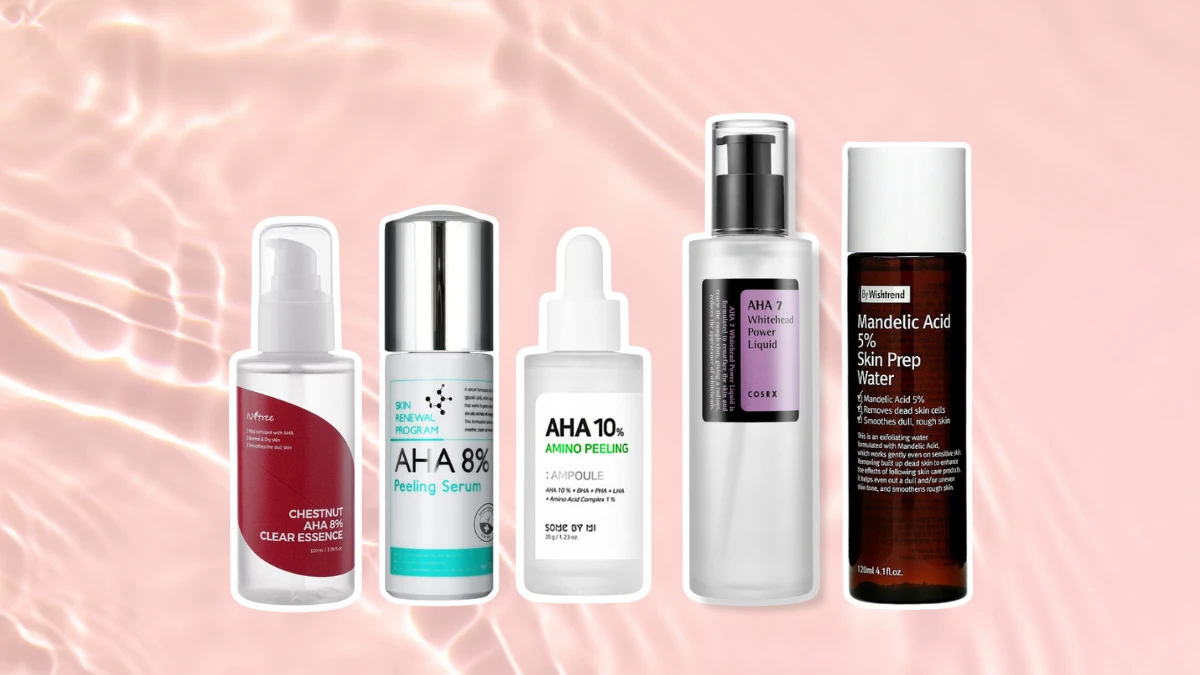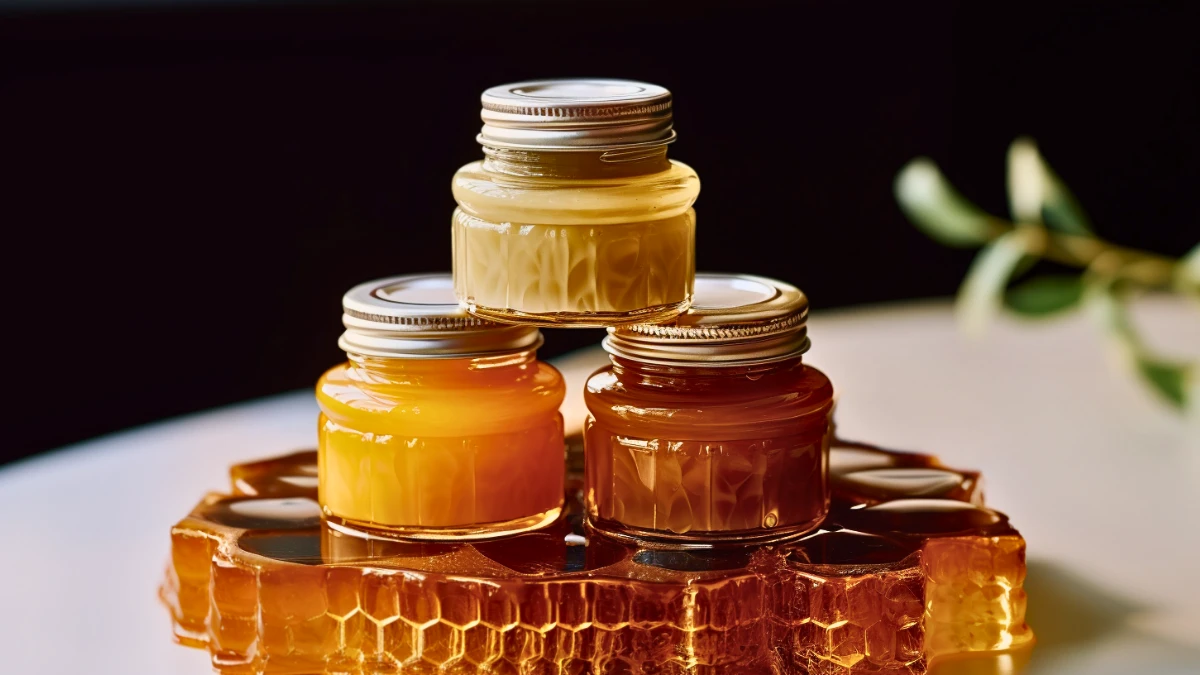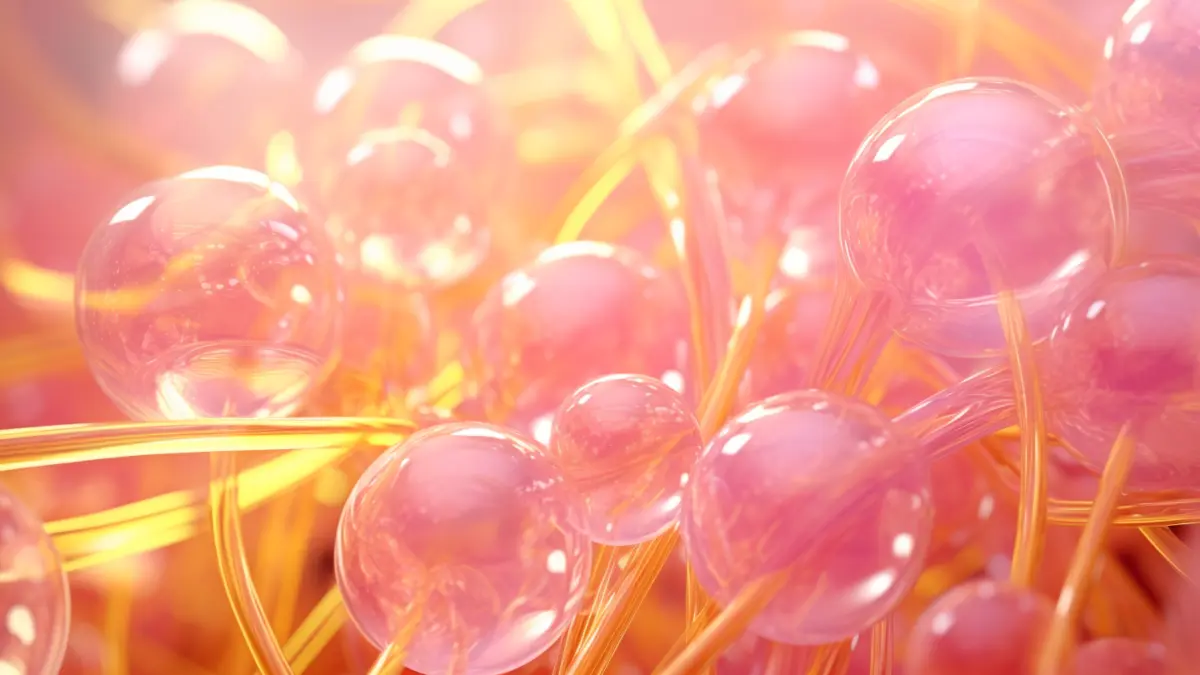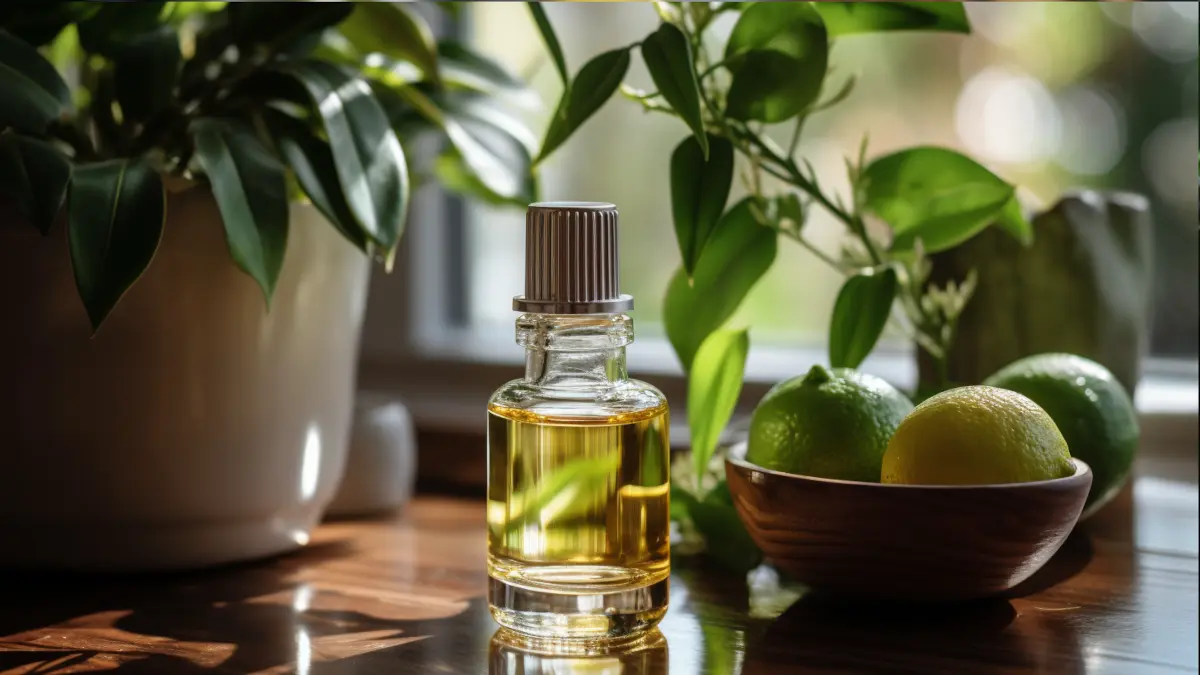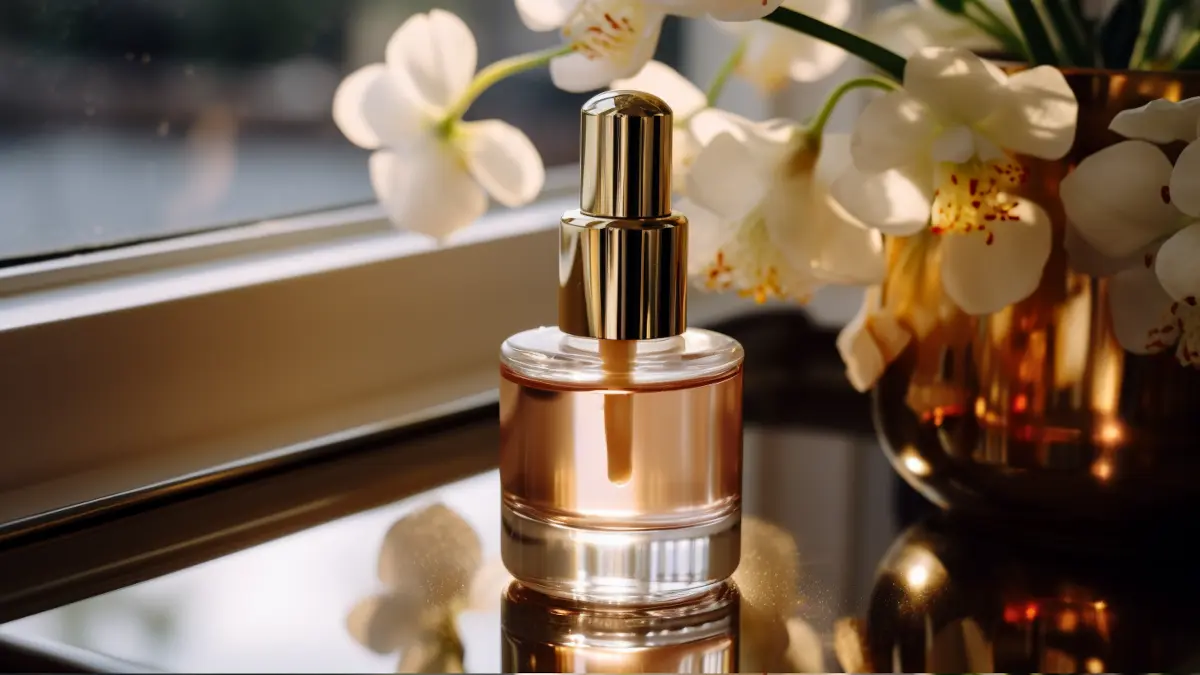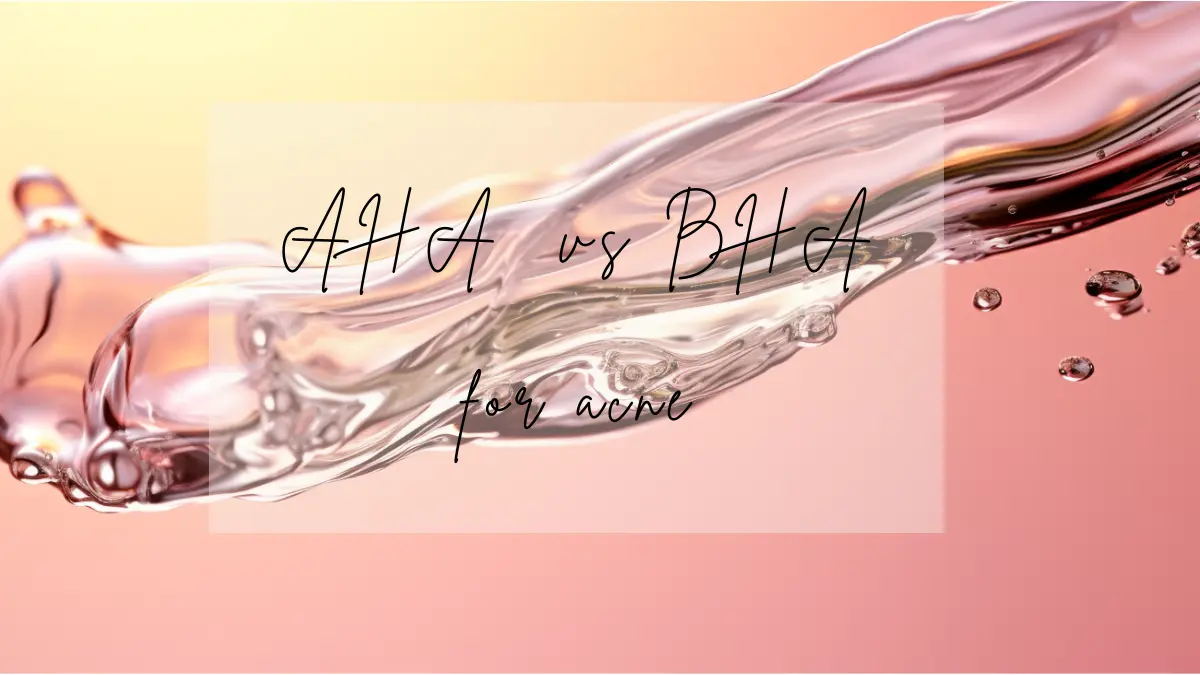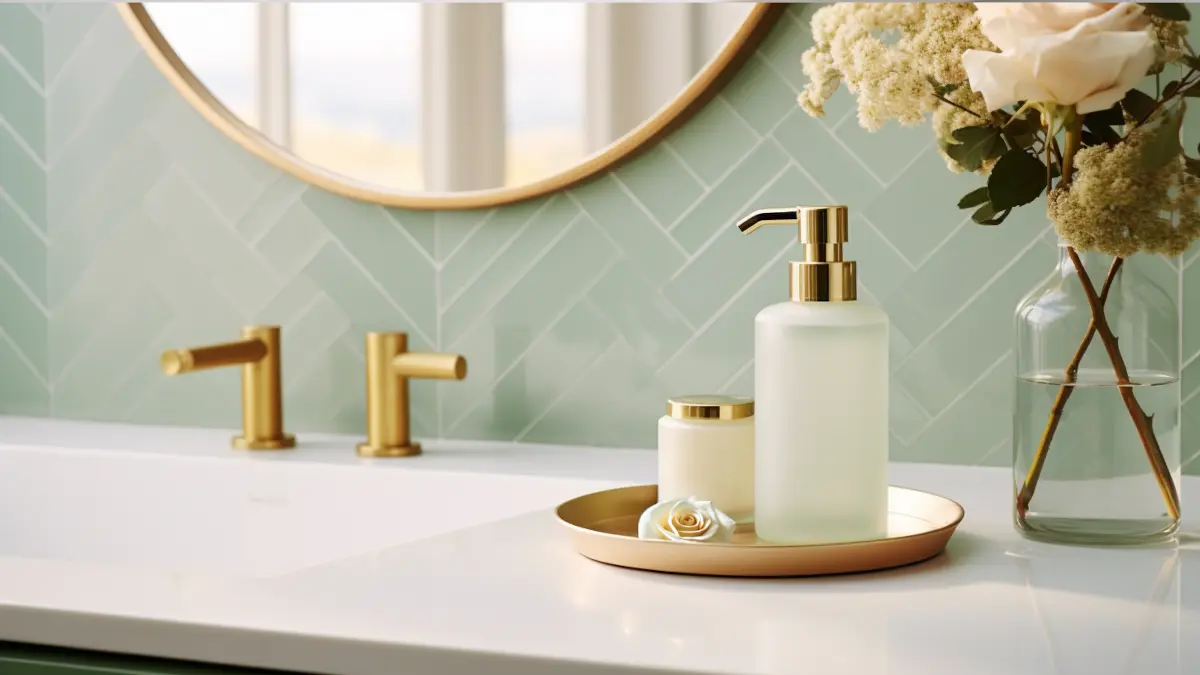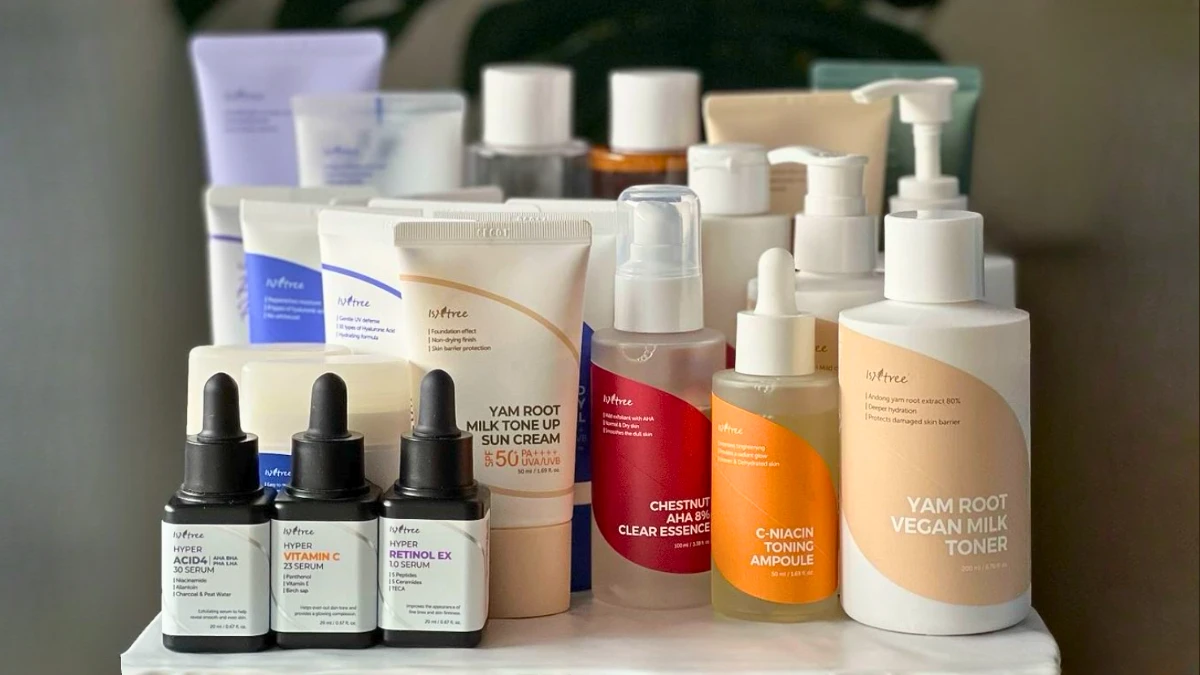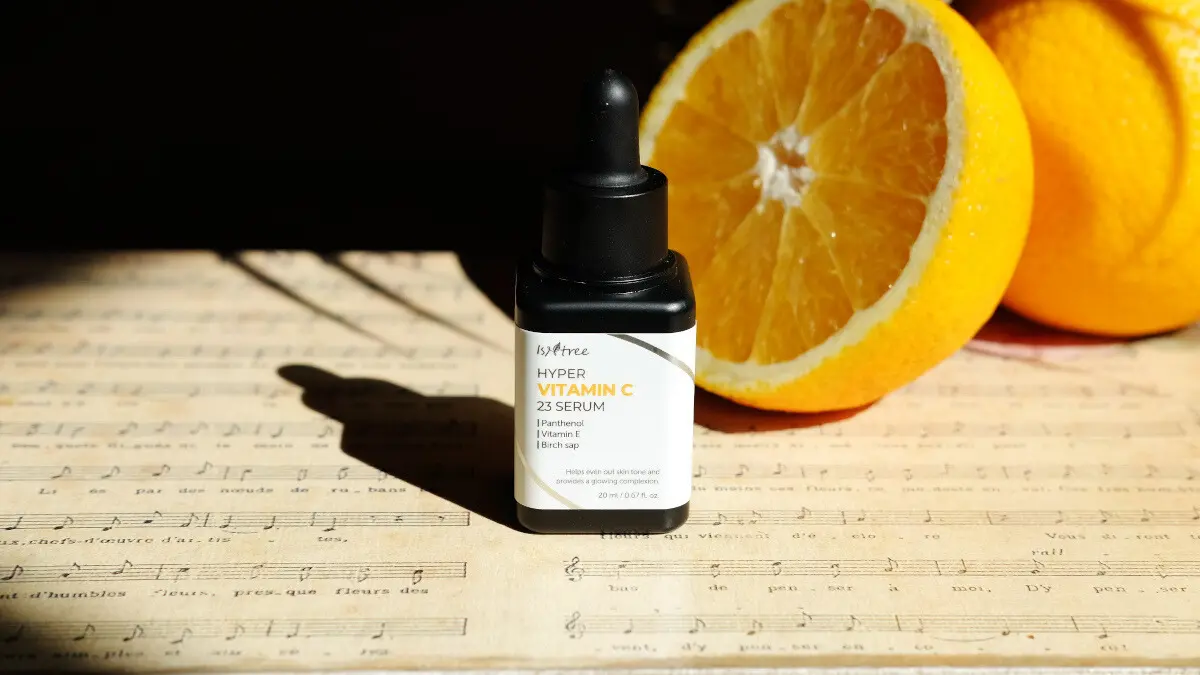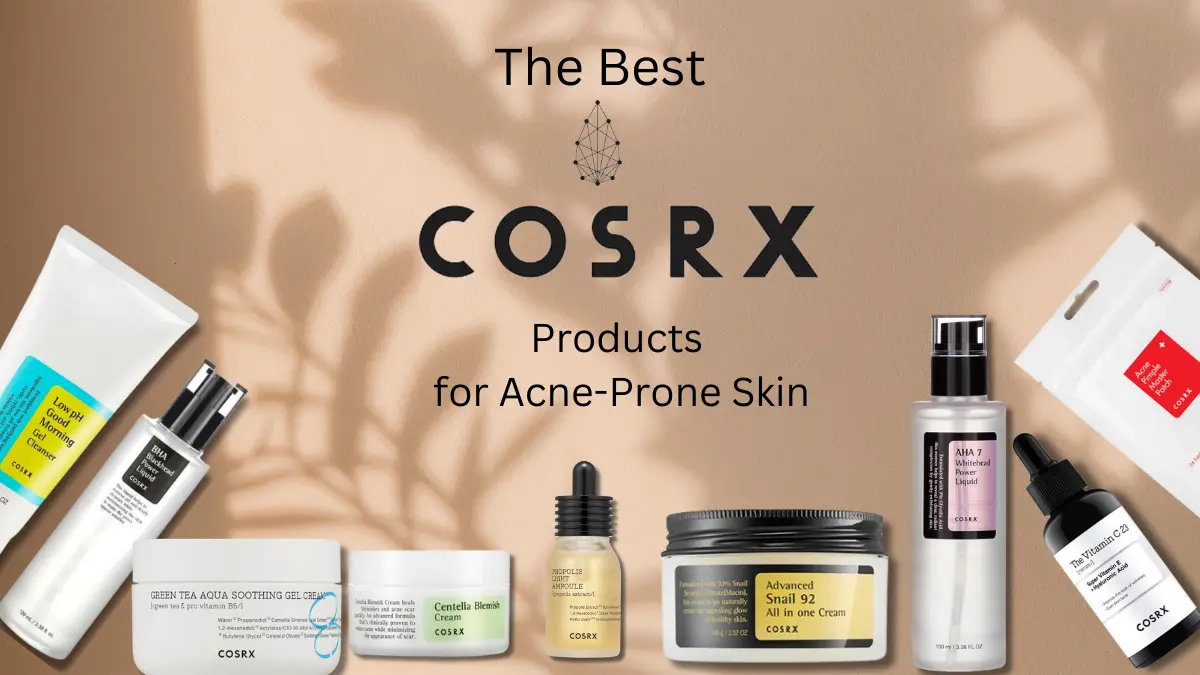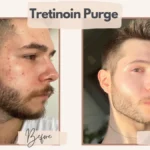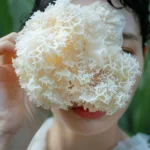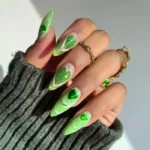Now that I am a pushing-30-grown-up-woman-child, it’s high time I get my nutrition right. I’ve been trying to binge on vitamin-rich veggies at least once a week, but the rest of my days belong to leftover spaghetti or something equally glutinous.
Now and again, I remember to pop a multivitamin. But to forget to put vitamin C in my skincare? NEVER. I’m like a Catholic school nun with that stuff, the discipline evident in the results. Sure, the best way to intake vitamin C is by eating it in food, but it can do wonders on top of your skin, too. I’ve dabbled in many, but the ones that work the best for me are those with pure Vitamins C, aka L-Ascorbic Acid. Let me explain.
Suppose you’re after a more radiant and even complexion. In that case, you’ll want one crucial ingredient on your product radar: vitamin C. No matter what type of hyperpigmentation your skin has, such as acne scarring, sun damage, or melasma, a vitamin C serum is a must-have in your skincare routine if you’d like to brighten your skin.
But how does a vitamin C serum work, and what should you look for in a vitamin C serum? Where does a vitamin C serum fit into your skincare routine? And can you use it with other skincare products such as BHA, AHA, or niacinamide?
The thing about this dark spot-clearing, antioxidant-boosting, blotch-brightening power player is that not all versions are created equally. Not sure which ones are worthy of your routine? Keep reading: Our editors have tested dozens of them, and below, they share the best Korean vitamin C serums on the market.
The Best Korean Vitamin C Serums:
The Best Korean Vitamin C Serums Guide:
What Is Vitamin C?
We all know how vital vitamin C is nutritionally in our everyday diet, but did you know that it’s also a powerful ingredient with many benefits when it comes to skincare?
Vitamin C is simply a water-soluble nutrient that acts as an antioxidant in the body by protecting cells from the damage caused by free radicals, known as oxidative damage. This, of course, includes skin cells. Vitamin C can help fight free radicals and prevent damage caused by ultraviolet light, aka sun damage.
Not only is vitamin C good at fading hyperpigmentation and general skin brightening, but boosting the skin’s collagen production and decreasing trans-epidermal water loss can also help reduce fine lines and wrinkles. Making it the perfect anti-aging ingredient!
Who doesn’t want brighter, firmer, and plumper skin?

L-Ascorbic Acid Benefits
This one is my main jam. You’ll find it in most brightening, free radical-fighting, tone-evening, collagen-promoting, and even sunburn-alleviating skin care products.
Vitamin C, aka L-Ascorbic acid, works in three ways, mostly.
- It’s an effective antioxidant. Vitamin C is fantastic at brightening and telling free radicals to scram so your complexion can be clear and glowing. We like antioxidants.
- It inhibits melanin production. Melanin is your skin’s natural sun protection, making you tan in the sun. You might be thinking, doesn’t darkening your skin give you more sun protection? True, but melanin can also breed dark spots, aka age spots. Too much UV radiation damages your melanocytes, the cells that produce melanin, causing them to overproduce.
- L-ascorbic acid boosts collagen synthesis. This means your face can remain cherubically sproingy for longer. It’s not anti-aging, per se, but collagen is like a sports bra for your skin.
L-ascorbic acid is a strong substance when topically applied (it is an acid, after all) and is not easily stabilized, so the best Korean Vitamin C serums are usually expensive.
Vitamin C for Hyperpigmentation
Without going too much into biochemistry, what makes vitamin C such a sought-after ingredient when it comes to fading hyperpigmentation?
Vitamin C reduces the activity of tyrosinase, an enzyme involved in the formation of melanin in skin cells, by interacting with copper ions at the active site of tyrosinase. In other words, it inhibits melanin production, thereby preventing hyperpigmentation.
I want to point out something essential. Prevention. Vitamin C only prevents hyperpigmentation. It cannot fade existing hyperpigmentation. Therefore, wearing a broadspectrum high SPF daily is essential to prevent new hyperpigmentation from forming.
Use ingredients such as alpha-hydroxy acids (AHAs) or beta-hydroxy acids (BHAs) to increase the cell turnover rate of your skin to reveal newer and brighter skin. Without these additional steps, you would likely not see any effects when using a vitamin C serum and would be wasting your valuable money.
How To Fade Hyperpigmentation And Get Brighter Skin With Korean Skincare
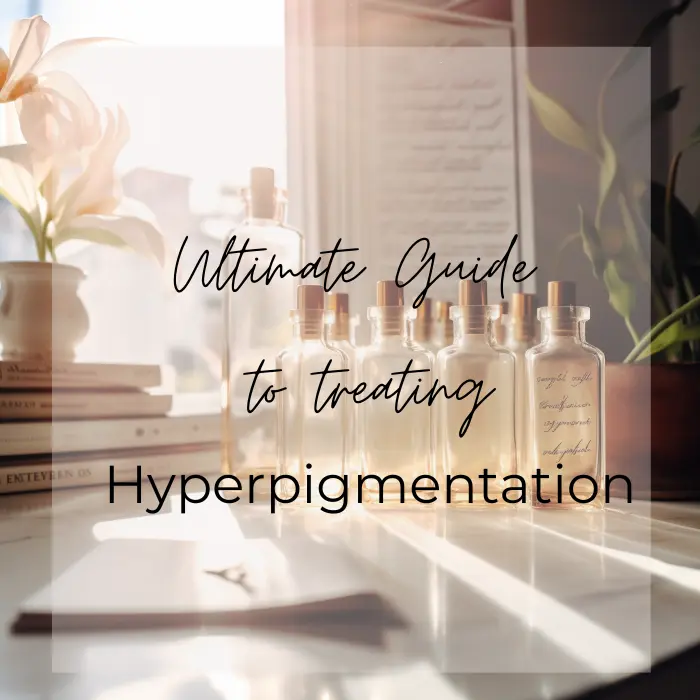
Vitamin C Serum for Fading Post-inflammatory Hyperpigmentation
One of the most common skin concerns is acne marks, also known as post-inflammatory hyperpigmentation (PIH). As opposed to acne scars, which are depressions left in the skin, acne marks look darker than the rest of your skin.
When a pimple heals, it can leave a mark or a scar on the skin. This happens because the skin’s normal healing process is interrupted by inflammation or infection.
How to Get Rid of Post-Inflammatory Hyperpigmentation, AKA Acne Marks
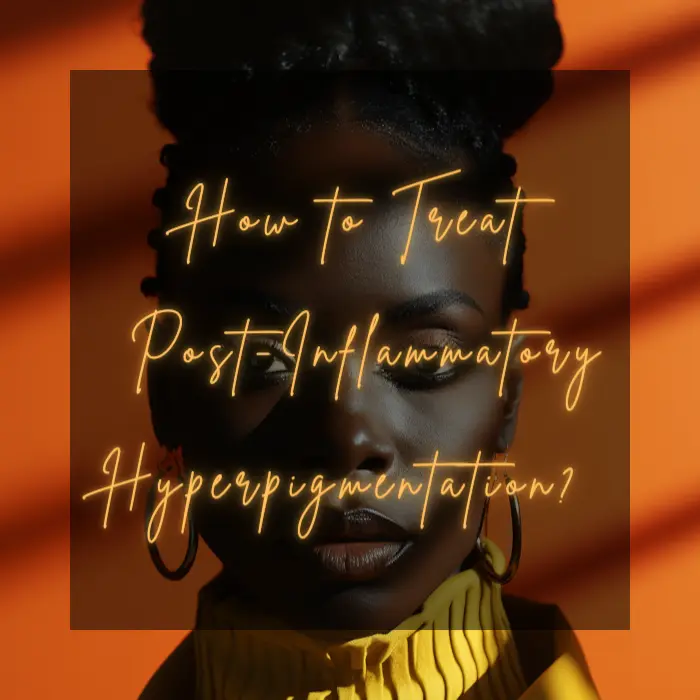
A spot is usually a dark or red spot that fades over time. A scar is usually permanent and requires dermatologist treatments (such as laser or dermal fillers) to minimize its appearance. Acne marks, however, can fade naturally over time (over about 3 to 6 months as your skin cells turnover).
Vitamin C can be used to speed up this process of fading PIH. This is due to its ability to stimulate collagen production, speeding healing. Vitamin C also helps to fade PIH by inhibiting the production of melanin, which can darken spots, especially in the sun.
Just don’t forget your sunscreen during the day!
Want to Learn More about Vitamin C in Skincare?
What To Look For in a Vitamin C Serum
There are a few things to consider when choosing a vitamin C serum. This includes what form of vitamin C the product contains, what percentage of vitamin C the product contains (the concentration), what type of packaging the serum comes in, and what other beneficial skincare ingredients the product may be formulated with.
What Form of Vitamin C Is the Most Effective at Fading Hyperpigmentation?
There are many forms of vitamin C, including:
- ascorbic acid (also known as L-ascorbic acid or L-AA);
- sodium ascorbyl phosphate;
- ascorbyl palmitate;
- retinyl ascorbate;
- tetrahexyldecyl ascorbate;
- magnesium ascorbyl phosphate;
- ascorbyl glucoside;
- 3-O ethyl ascorbic acid (a relatively new form).
Sodium Ascorbyl Phosphate vs. L-Ascorbic Acid: A Guide
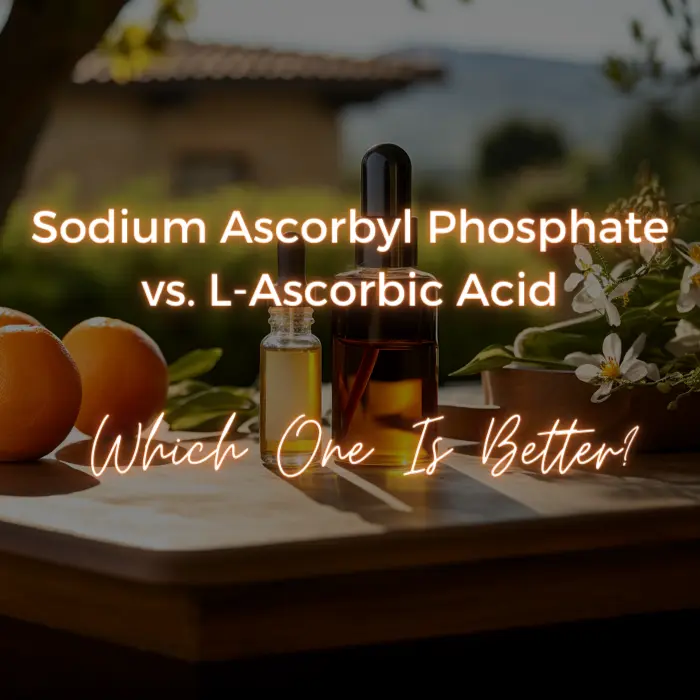
However, some forms work better than others, so paying attention to this when buying a vitamin C serum is essential.
Choosing a product containing L-ascorbic acid is best for maximum anti-aging and skin-brightening properties, as it is the form of vitamin C with the most skin-related research behind it. It has also consistently been shown to be the most effective form of penetrating the skin barrier.
Sadly, L-ascorbic acid is a highly unstable ingredient. It oxidizes (breaks down) quickly when exposed to light and air and becomes ineffective. It’s, therefore, essential to verify that the L-ascorbic acid in your serum is stabilized (more on that below).
The other two forms of vitamin C that also work well for anti-aging are Tetrahexyldecyl ascorbate and magnesium ascorbyl phosphate.
The Importance of Vitamin C Concentration in Serums
The efficacy of a vitamin C serum is proportional to the concentration, meaning that the higher the concentration of vitamin C in a product, the more effective it is at brightening the skin.
Studies have shown that even a vitamin C concentration as low as 0.6% provides antioxidant and anti-aging benefits to the skin.
However, a concentration of 20% has been shown to have the most significant effect on fading hyperpigmentation. It’s also important to note that your skin can only absorb so much L-ascorbic acid as it is — namely, a 20 percent concentration — so seeking out that level of vitamin C in your products is ideal.
Studies have also shown that concentrations above 20% don’t result in higher efficacy.
Of course, make sure your skin is adequately exfoliated before applying your formula of choice (you don’t want any dead skin cells to soak up all that vitamin C!).
Serums containing a large amount of vitamin C usually do state the concentration. If the serum you use or would like to purchase doesn’t indicate the concentration, it likely contains a small amount of vitamin C.
Related article: Vitamin C serum L-Ascorbic Acid (LAA)
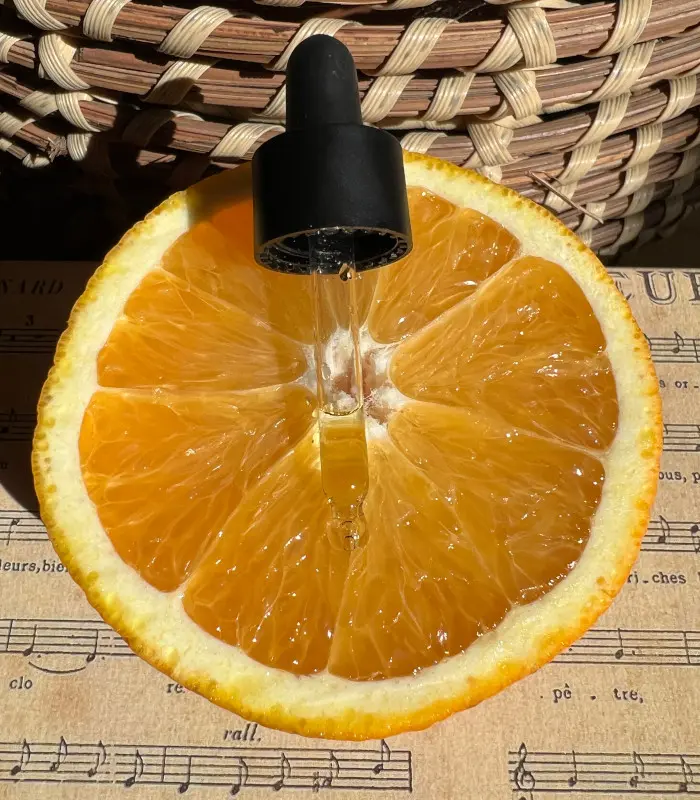
Preventing Vitamin C Oxidation: The Importance of Product Packaging and Storage
For the longest time, I was convinced that all vitamin C-based products like serums had this ridiculous shelf life that succumbed to oxidation the second it came into contact with air and light — essentially every time you apply it — so that its effectiveness had a diminishing half-life. I don’t even get how anyone would get on board with that, considering that vitamin C serums are by and large not cheap (and if it is cheap, it’s probably straight acid—run).
Indeed, all antioxidants degrade very fast when they come in contact with the air (oxygen) or sunlight; vitamin C is no exception! But there are ways to counteract this.
I highly recommend buying vitamin C serums in dark glass, opaque bottles, as this is the most stable way to store them. This is how you ensure you will get the best results from your skincare product. Since the glass bottles tend to come with a dropper and not a pump, contact with oxygen is inevitable, so I advise opening only one serum at a time. I also give my vitamin C serum a 3-month shelf life once opened, although I have heard people getting away with up to 6 months.
I store my vitamin C serum in the fridge to keep the shelf life as long as possible, as heat can also cause your product to degrade.
If you find that your vitamin C serum has changed to a tan or brown color, then it means it has oxidized. Never apply an oxidized product, as it will generate free radicals in your skin, causing damage instead of preventing it.
Other Beneficial Ingredients That Work Well With Vitamin C
What ingredients should your vitamin C serum contain? I’ve already talked about L-AA being the preferred form of vitamin C. Still, there are a few other beneficial ingredients that work well with vitamin C.
Yes, niacinamide is one of them.
The effectiveness of vitamin C is significantly increased when combined with other potent antioxidants such as vitamin E and ferulic acid. This is because they support each other’s antioxidant function when used together.
For example, vitamin E enhances the antioxidant effects of vitamin C when they are applied to the skin at the same time. Both vitamin C and vitamin E also play a role in protecting your skin cells from sun damage because they neutralize the free radicals generated during UV exposure. Therefore, having both vitamins in your serum helps prevent sun damage better than either one alone.
Vitamin C and E also work together to maintain healthy collagen, a protein important for skin strength. Vitamin C is needed to help synthesize collagen, and vitamin E is required to maintain proper cross-links between collagen fibers.
Ferulic acid is also a potent antioxidant, naturally occurring in the cell walls of plants. Skincare-related studies have shown it can enhance vitamin C and E’s effects. It is believed that ferulic acid increases the stability of vitamin C in water solution and almost doubles the effectiveness of vitamin C and vitamin E’s ability to protect the skin against UV damage.
So, when searching for the best Korean vitamin C serums, I highly recommend choosing one that also contains either vitamin E or ferulic acid, or even better, both!
Related: Best Korean Water-Based Cleansers
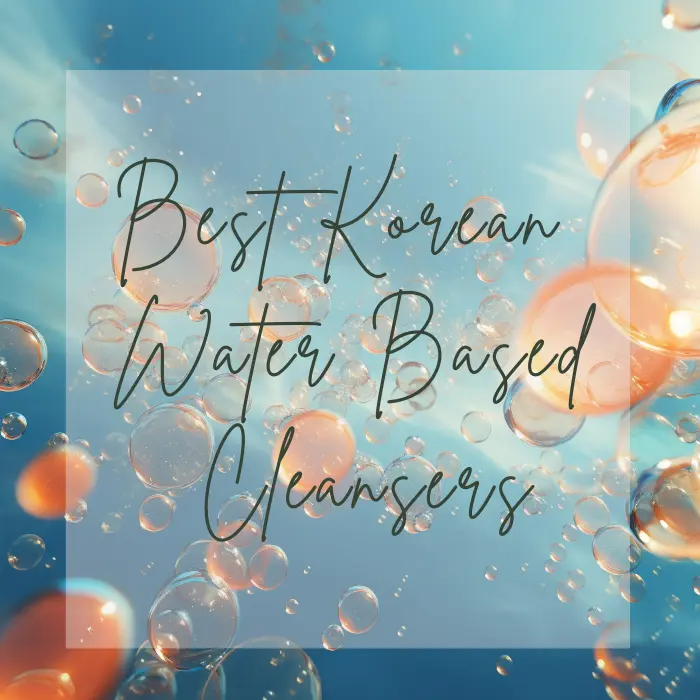
When Should You Use Vitamin C in Your Skincare Routine?
You can apply your vitamin C serum in the morning or the evening. Due to its photo-protective effects, many prefer it during their morning routine. Remember, it only boosts your sunscreen’s protection. It doesn’t replace it!
In terms of when to apply your vitamin C serum in your routine, you should:
- First cleanse
- Second cleanse
- Cleansing toner
- ph balancing toner
- Vitamin C serum, wait 15 minutes.
- BHA
- AHA
- Hydrating toners
- Serum
- Moisturizer
- Sunscreen
In the AM, you don’t need three types of cleansers. Except for sunscreen, all products listed are optional. Unless your skin tolerates actives very well, I would recommend perhaps applying the vitamin C serum in the morning and your BHA and AHA in the evening, or even better, using them on alternate days.
Like most actives, vitamin C requires a 15-20 minute absorption window because it is pH-dependent (L-ascorbic acid). You must wait 15-20 minutes after applying your vitamin C serum before applying the following product in your routine.
Best Korean Vitamin C Serums
Since pretty much all of us are exposed to at least some UV light and pollutants, and boosting collagen is always a desirable trait in a skincare ingredient, using a Vitamin C serum is a good idea for almost anybody. But once you start researching the best Korean Vitamin C serums, it’s easy to get overwhelmed quickly.
First, there are many Vitamin C serums out there, and so many people have so many different and often strong opinions about them. A quick Google search produces hundreds of millions of search results, and the ads that google immediately begins bombarding you with are for products with largely inscrutable names at wildly varying prices. Even if you’re already familiar with the skincare world, researching Vitamin C serums can be exhausting — if you’re a beginner, it’s very tempting to take whatever pops up first and run.
If you start researching Vitamin C serums, you quickly realize it’s even more of a quagmire than anticipated. Pure Vitamin C is a challenging ingredient to work with. As a result, many different derivatives are out there with somewhat different abilities and levels of efficacy.
We were happy to put a lot of work into researching the chemistry of topical Vitamin C and the cost-benefit ratio of figuring out what Vitamin C serum to use. Important factors to consider:
- It contains 15% – 20% pure vitamin C L-Ascorbic Acid;
- It contains vitamin E and ferulic acid;
- Dark, opaque container
- It comes in a pump bottle.
It’s important to note that these serums have high concentrations of L-ascorbic acid and may not be suitable for someone new to Vitamin C. If this is the case for you, have a look at Sodium Ascorbyl Phosphate vs. L-Ascorbic Acid: Which One Is Better?
Please note that vitamin C can increase the skin’s sensitivity to the sun, so applying sunscreen daily is crucial, especially when using these serums. Some individuals may experience mild irritation or redness, particularly if they have sensitive skin or use vitamin C for the first time. It’s recommended to perform a patch test before applying the serum to the entire face.
1. Tiam Vitamin C24 Surprise Serum – Best Korean Vitamin C on a budget
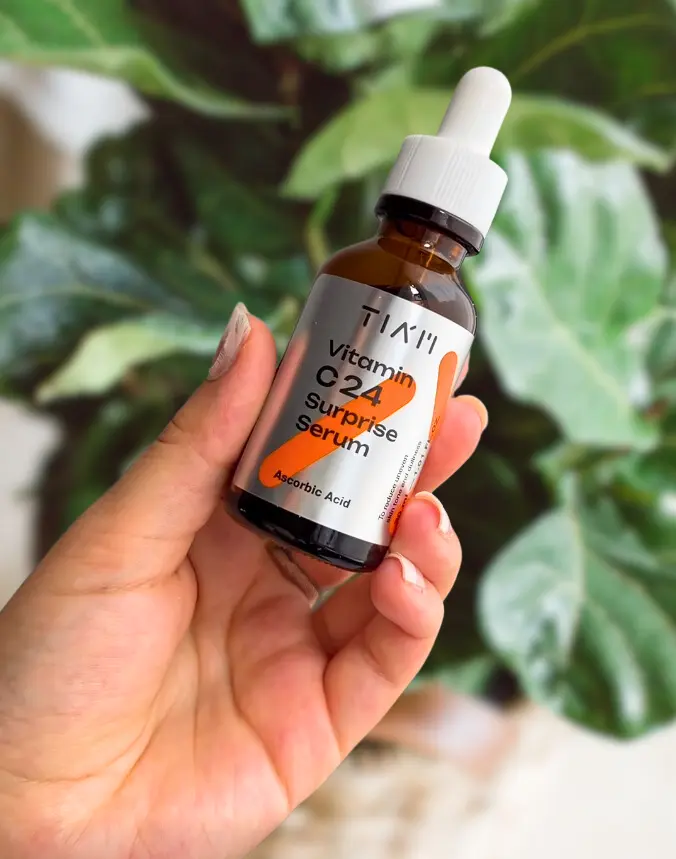
We Like
- Contains the golden trifecta L Ascorbic Acid, Ferulic Acid, and Vitamin E;
- It includes another Vitamin C derivative plus hydrating and soothing ingredients;
- Effective at reducing hyperpigmentation and PIH;
- The dark dropper bottle helps prevent oxidation;
- Fragrance and essential oil-free and alcohol-free
- Highly Affordable;
- Cruelty-free.
We Don’t Like
- Concentration is 22%, which is more than the optimal range;
- May not be suited for sensitive skin;
- Not for first-time Vitamin C users;
- It leaves my skin feeling tacky;
- Dropper bottle.
The experts I’ve interviewed often say vitamin C is not only a potent skin brightener, but it also acts as an antioxidant. I am pairing it with SPF as part of my daytime routine.
This Tia’m one hits all of the points on my checklist: a very high concentration of L-ascorbic acid, contains vitamin E plus ferulic acid, comes in a dark glass dropper bottle, is absorbent, fragrance-free, essential-oil free, and made up of a medley of beneficial ingredients. That breaks down to a whopping concentration of pure Vitamin C – 22% and 2% Vitamin C derivative, which helps resurface dull skin. After using it, I have noticed smoother skin that glows.
It contains potent antioxidants such as vitamin E and ferulic acid that significantly increase the effectiveness of vitamin C, and it also contains Glutathione. Glutathione is a powerful antioxidant that protects cells from environmental damage and may reduce signs of aging. Glutathione was discovered to have skin-brightening effects by accident. Glutathione can inhibit melanin production and switch to a lighter pigment type.
I notice some redness has faded, lightening of my acne scars and the general evenness of my face. This gentle, fast-absorbing serum leaves my skin hydrated and nourished with a healthy effect. With the outcomes I’ve seen so far, I have high expectations for this.
This Korean vitamin C serum does not contain water. This helps prevent oxidation, which can cause Vitamin C to lose its potency and turn amber over time. Instead, glycerin is high on the ingredients list, one of the most effective humectants used in skincare products, and it’s naturally present in our skin as part of the natural moisturizing factor.
Tia’m Vitamin C24 Surprise Serum has a thick, clear, colorless liquid consistency but spreads effortlessly. It is also excellent at hydrating the skin. This serum’s texture makes it easier to target specific areas of concern, such as blemishes, dark spots, and dull skin.
Tia’m Vitamin C24 Surprise Serum is designed to maximize the benefits of Vitamin C while minimizing the risk of irritation. It contains vitamin E and Ferulic Acid. This robust little bottle of vitamin C is a good dupe of the notoriously priced Skinceuticals Vitamin C + Vitamin E + Ferulic Acid Serum, which contains only 15% L-ascorbic acid.
By applying this thin, liquid serum to my skin after toner, before moisturizer, I’ve found my skin smoother, brighter, and more even looking, and pesky dark spots look a bit lighter. I won’t say the dark spot reduction is remarkable, but I expect continued results with prolonged use. Since I began using this serum, the biggest and most immediate I saw is smoother skin. After several uses, my skin felt much smoother, and my driest areas were less noticeable. I wondered if applying the serum would be difficult, as it’s very thin. I envisioned it running everywhere, but the pipette lets you control how much you dispense onto your hand, making the application fuss-free.
Overall, this Korean vitamin C serum suits those looking to improve their skin’s appearance by targeting specific concerns. I love that this serum is also quite budget-friendly, making it a great option for anyone. Due to the high percentage of L-Ascorbic Acid, I would not recommend this to sensitive skin types and first-time Vitamin C users.
Price: $8-$19 / 1.01 fl. oz. (~$13 per ounce)
Tia’m Vitamin C24 Surprise Serum Ingredients List (last checked [current_year])
Propanediol, Ascorbic Acid (22%), Ethyl Ascorbyl Ether, Glycerin, Dipropylene Glycol, Pentylene Glycol, Butylene Glycol, Potassium Hydroxide, Madecassoside, Glutathione, Ferulic Acid, Carnitine, Pyridoxine, Biotin, Inositol, Folic Acid, Tocopherol.
Active Herbs Humectant/Moisturizing
2. Numbuzin No.5+ Vitamin Concentrated Serum – Best for Sensitive Skin
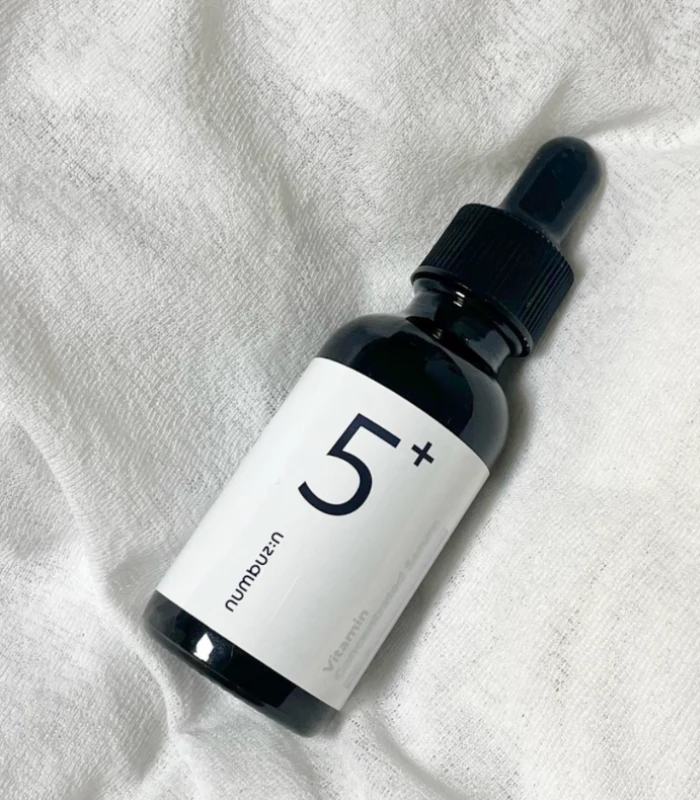
We Like
- Excellent option for sensitive skin or vitamin C first-time users;
- Chock full of actives: three types of vitamin C;
- Contains hydrating & soothing ingredients;
- Opaque bottle prevents oxidation;
- Widely available
- Essential oil-free, fragrance-free, alcohol-free.
We Don’t Like
- Dropper bottle.
Holy Vitamin C serum! This is the first time I have seen such a formulation. It is what I call a concentrated serum. I think the conversation with the manufacturer went:
Manufacturer: How many brightening ingredients do you want in this vitamin C serum?
numbuzin: Yes
Joke aside, such a super cocktail is a delight and excellent nutrition for our skin. It has everything you’d want from a serum (besides exfoliating acids):
- The star ingredient is Lingonberry (60%), an evergreen woody dwarf shrub that grows in northern temperate. Lingonberry contains polyphenolics, vitamins, minerals, polysaccharides, free amino acids, and omega-3 fatty acids.
- Niacinamide regulates sebum production, strengthening skin barriers and replenishing moisture. It works along adenosine to minimize the appearance of dark spots, fine lines, and wrinkles.
- Three types of vitamin C, LAA, and two derivatives have brightening and anti-aging properties.
- Tranexamic Acid, Alpha-Arbutin, Glutathione, and Licorice Root are other well-known ingredients for skin brightening.
- Two types of Vitamin E increase skin elasticity and keep the skin moisturized.
- Nine herbal extracts with antioxidant properties.
- Ten humectant and moisturizing ingredients, including shea butter, ceramides, beta-glucan, sodium hyaluronate, and glycerin.
There are so many amazing ingredients, right?! I love that this serum effectively combines all these great ingredients into one small bottle.
So, how did I feel after using it? At first, I noticed the scent had a bit of an off-putting scent, but then I researched and found out it’s actually from all the ingredients! (So you do have to be mindful of the scent).
However, after using it for quite some time! I noticed how bouncy and easier it made for my makeup to apply, and all my little fine lines were slowly fading. I’m still yet to test to see if it removes my hyperpigmentation!
The serum’s texture is very smooth and creamy and easy to spread across the skin. It is lightly moisturizing and soaks into the skin very easily. If you have extremely oily skin, I could see not using a moisturizer afterward. On the other hand, nighttime is a great time to go overboard with hydration.
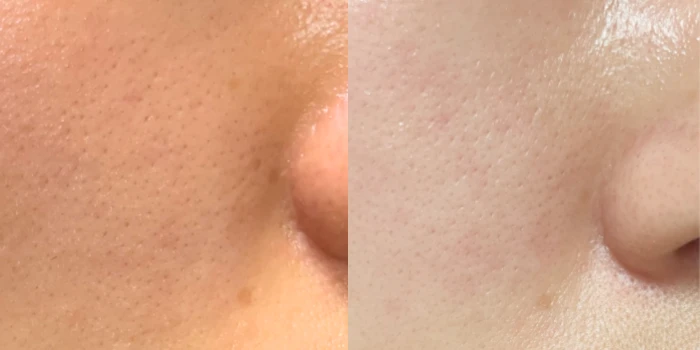
When I wake up after using the Numbuzin No.5+ Vitamin Concentrated Serum, my skin is smooth, even-toned, hydrated, bright, and clear. I have never found this to clog my easily congested pores; in fact, I’m pretty sure this has helped clear up congestion for me.
I hesitate to call the Numbuzin No.5+ Vitamin Concentrated Serum a good “anti-aging” product because, to me, there’s a sense in which the concept of “anti-aging” is inevitably a little self-destructive, or at least unfriendly to yourself and the years you have earned by living them. But I would say this is a good serum for a well-lived life. As the years go by, your skin will want more of exactly what this serum offers. Be nice to your skin, and indulge in it.
If you want to double down on the fading hyperpigmentation, hydrating, wrinkle-smoothing, and firming powers of this serum, Numbuzin also makes a toner pad and a mask in the same line (I mean number :).
Who is it for? I’d recommend this serum to pretty much anybody; the stuff it’s made out of is just fantastic for skin at any stage. This combination of ingredients makes the Numbuzin No.5+ Vitamin Concentrated Serum especially well-suited to anyone whose skincare goals are increased collagen synthesis (which smooths out wrinkles and texture issues), healing and preventing sun damage, supporting the skin barrier, and hydration. Those goals are prevalent for more mature skin, but they’re nice things to aim for at any age.
Comedogenic ingredients: Tocopherol (2/5), Butylene Glycol (1/5), Carbomer (1/5)
Price: $18-$22 / 1.01 fl. oz. (~$20 per ounce)
Numbuzin No.5+ Vitamin Concentrated Serum Ingredients List (last check [current_year])
Vaccinium Vitis-Idaea Fruit Extract (604,074Ppm), Butylene Glycol, Niacinamide (50,000Ppm), Panthenol (50,000Ppm), Tranexamic Acid (40,000Ppm), Aqua, 1,2-Hexanediol, Neopentyl Glycol Dicaprate, Capric/Caprylic Triglycerides, Sorbitol, Bifida Ferment Filtrate, Chondrus Crispus Extract, Butyrospermum Parkii Butter, Saccharum Officinarum Extract, Alpha-Arbutin, Sodium Hyaluronate, Melia Azadirachta Flower Extract, Ocimum Sanctum Leaf Extract, Melia Azadirachta Leaf Extract, Curcuma Longa Root Extract, Corallina Officinalis Extract, Tremella Fuciformis Extract, Pentylene Glycol, Glycerin, 3-O-Ethyl Ascorbic Acid (2,000Ppm), Alpha Bisabolol, Tromethamine, Ethylhexylglycerin, Adenosine, Hydrogenated Lecithin, Allantoin, Glutathione (100Ppm), Ceramide NP, Beta-Glucan, Dipotassium Glycyrrhizate, Tocopherol, L Ascorbic Acid, Ascorbyl Glucoside, Tocopheryl Acetate, Hydroxypropyl Cyclodextrin, Ubiquinone, Alpha Lipoic Acid, Potassium Hydroxide, Behenyl Alcohol, Carbomer, Xanthan Gum, Disodium EDTA
Herb Humectant/Moisturizer Active Ferment Brightening
3. Anua Green Lemon Vitamin C Blemish Serum – Best Korean Vitamin C Serum for acne-prone skin
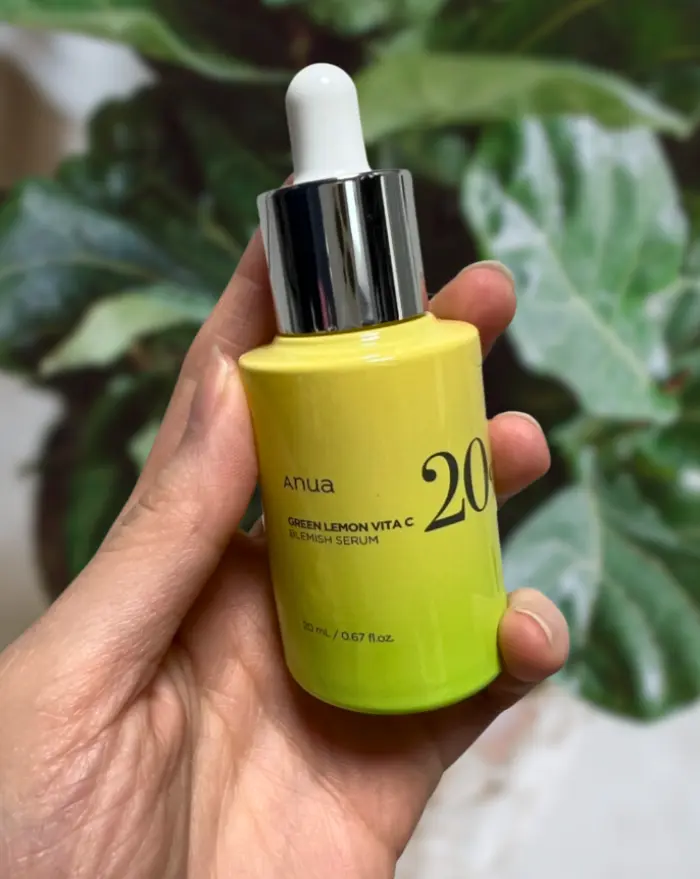
We Like
- Contains optimal percentage of 20% pure LAA Vitaminc C, plus Vitamin E and Ferulic Acid;
- Contains niacinamide;
- It contains SAP, another vitamin C derivative, plus hydrating and soothing ingredients;
- Four types of hyaluronic acid;
- Opaque dropper bottle helps prevent oxidation.
- Alcohol-free
We Don’t Like
- May not be suited for sensitive skin;
- Pricey compared to the others;
- It contains fragrance and essential oils;
- It has a strong lemon-lime scent;
- Comes in a dropper bottle.
Vitamin C is my holy grail ingredient, so not only am I very discerning about what serums cut into my daily routine, but I’m always trying a new formula to find the best Korean vitamin C serum.
This serum doesn’t have that tell-tale vitamin C scent; instead, it imparts your skin and senses with a waft of light, citrus-floral scent, and dewy veil of product. You should skip this if your skin is sensitive to essential oils and fragrances.
In my opinion, this is probably the best straightforward Vitamin C serum out there.
Anua Green Lemon Vitamin C Blemish Serum contains 20% pure vitamin C, E, and Ferulic Acid. I also like the addition of four types of hyaluronic acid. As we know, it holds 1000x its weight in water, thus amplifying anything you apply over it. It leaves the skin beautifully moisturized and plump.
The power-duo adenosine and niacinamide help reduce fine lines and hyperpigmentation. But what makes this serum special is the inclusion of ceramides, lipids, and nourishing oils. These ingredients help hydrate and heal dry, sensitive, or damaged skin.
Anua Green Lemon Vitamin C Blemish Serum is a lightweight oil-like consistency but absorbs well into the skin. The finish is very smooth and not sticky at all. I noticed that my skin looked more radiant the next morning. This serum needs to be stored in the fridge after opening.
Note: This stuff is pricier than the rest, but a little goes a long way. The bottle recommends using one to two full droppers on the face, but I find that smoothing six drops across the face is all you need to get a serious glow.
Price: $17-$42 / 0.67 fl. oz. (~$44 per ounce)
Anua Green Lemon Vitamin C Blemish Serum Ingredients List (last checked [current_year])
Citrus Limon (Lemon) Fruit Extract (560,000 Ppm), Ascorbic Acid (200,000 Ppm), Propanediol, Butylene Glycol, Dipropylene Glycol, Cyclopentasiloxane, 1,2-Hexanediol, Cyclohexasiloxane, Sodium Hydroxide, C12-14 Alketh-12, Alpha-Bisabolol, Sodium Polyacryloyldimethyl Taurate, Water, Polyacrylate Crosspolymer-6, Dimethicone/Vinyl Dimethicone Crosspolymer, Xanthan Gum, Ethylhexylglycerin, Allantoin, Glycerin, Glutathione, Citrus Aurantium Dulcis (Orange) Flower Oil, Litsea Cubeba Fruit Oil, Adenosine, Citrus Paradisi (Grapefruit) Peel Oil, Disodium EDTA, Citrus Aurantium Bergamia (Bergamot) Fruit Oil, Mentha Viridis (Spearmint) Leaf Oil, Tocopherol, Ferulic Acid, Barosma Betulina Leaf Extract, N-Butyl Alcohol, Hydrogenated Lecithin, Polyglyceryl-10 Stearate, Sorbitol, Panthenol, Beta-Glucan, Sodium Hyaluronate, Sodium Ascorbyl Phosphate, Caprylic/Capric Triglyceride, Helianthus Annuus (Sunflower) Seed Oil, Hyaluronic Acid, Sucrose Stearate, Glyceryl Stearates, Beta-Carotene, Sodium Hyaluronate Crosspolymer, Niacinamide, Hydrolyzed Sodium Hyaluronate, Hydrolyzed Hyaluronic Acid, Thioctic Acid, Lycopodium Clavatum Extract, Thioctic Acid, Lycopodium Clavatum Extract, Equisetum Arvense Extract, Sodium Acetylated Hyaluronate, Pyridoxine, Hydroxypropyltrimonium Hyaluronate, Folic Acid, Biotin, Ceramide NP, Ubiquinone, Cyanocobalamin, Thiamine Hcl, Riboflavin, Linoleic Acid, Hesperidin, Ergothioneine, Limonene, Linalool, Citral.
Active Herbs Humectant/Moisturizing Emollient Brightening Essential Oils & Fragrance
4. ELMT Pure Vitamin C 20% Element – Best Korean Vitamin C serum for dry skin
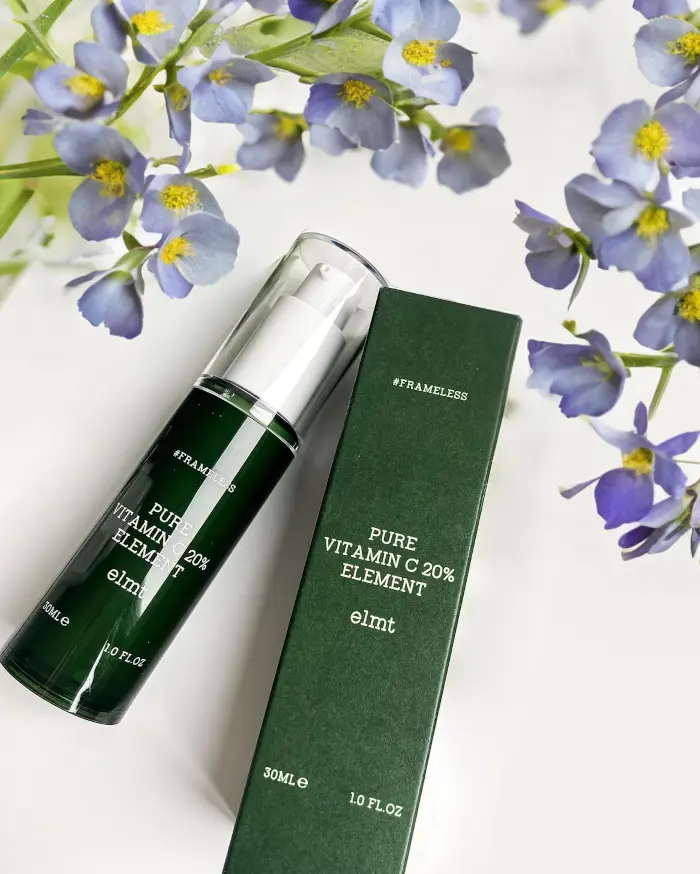
We Like
- Contains 20% pure LAA Vitaminc C, which is the highest percentage of ascorbic acid in the optimal range;
- Contains Ferulic Acid;
- It contains glycerin high in the ingredients list, which is an excellent humectant;
- Fragrance-free, essential oil-free, and alcohol-free;
- Opaque pump bottle ideal for preventing oxidation;
- Also in a mini size.
We Don’t Like
- May not be suited for sensitive skin
- It doesn’t contain vitamin E;
- Sticky;
- It is not widely available.
Pure Vitamin C 20% Element uses vitamin C in its purest form of ascorbic acid. It’s beneficial in increasing elasticity and balance for uneven skin tone.
This vitamin C Serum combines vitamins C and E and five humectants as the main ingredients. It is also home to many other good skin ingredients, including Rapeseedate Ferment and Apricot Kernel Oil.
This serum has the same lightweight texture as most Korean vitamin C serums, but I like that it is housed in a weighty plastic tube with a pump. Vitamin C is a rather unstable element susceptible to degradation when exposed to light and oxygen. For this reason, most formulas are in tinted bottles. The pump also means you’re not exposing the product to air each time it’s used, which means it will last longer and get the maximum potency from the formula. All good things here, packaging-wise.
Moreover, the ELMT formula is unique as it has an innovative powder-in-suspension formula. The 2-Tier Stabilization Technology first locks in the effectiveness of vitamin C with the help of a ferment, which is then suspended in a lipid base to prevent activation until you need it. This means that this serum stays fresh and potent.
Although it has a lightweight, creamy texture, it doesn’t feel sticky or heavy on my skin, it gives good glowing and dewy skin.
I’m really happy with how this serum performs. The ingredients are simple enough to understand and are effective – who doesn’t like visible results?
Who is this for? I would recommend this to dry, normal skin types.
Shelf life: 6 months.
Price: $22 / 1 fl. oz. (~$22 per ounce)
ELMT Pure Vitamin C 20% Element Ingredients List (last checked [current_year])
Propanediol, Ascorbic Acid (20%), Butylene Glycol, Glycerin, Pentylene Glycol, Candida Bombicola/Glucose/Methyl Rapeseedate Ferment, Glyceryl Glucoside, Ammonium Acryloyldimethyltaurate/VP Copolymer, Panthenol, Prunus Armeniaca (Apricot) Kernel Oil, Sodium Polyacrylate, Polyquaternium-10, Ferulic Acid.
Active Herbs Humectant/Moisturizing Ferment Emollient
5. COSRX The Vitamin C 23 Serum
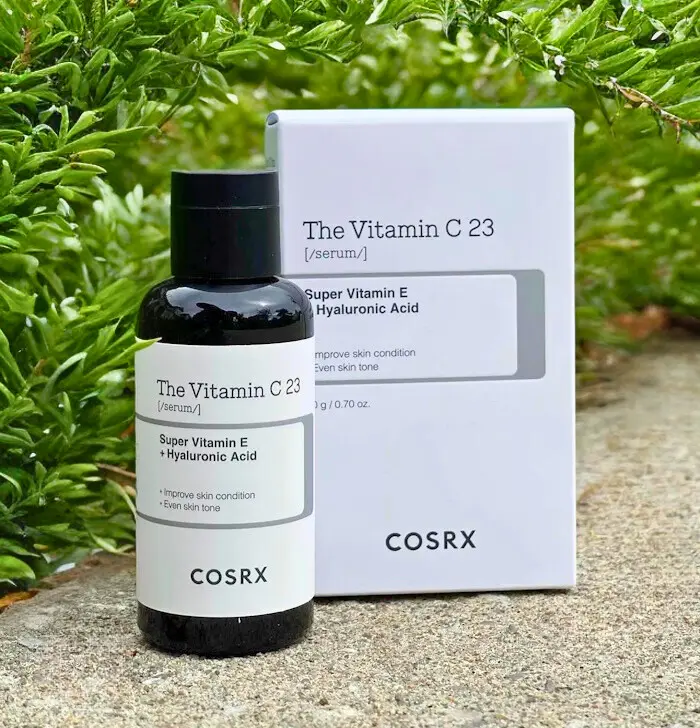
We Like
- Contains pure LAA Vitaminc C and two types of Vitamin E;
- It also contains a stable vitamin C derivative;
- It contains niacinamide, effective humectants and soothing ingredients;
- Essential-oil free;
- It comes in an opaque dropper bottle to help prevent it from oxidizing;
- Affordable;
- Cruelty-free.
We Don’t Like
- Concentration is 23%, which is more than the optimal range;
- May not be suited for sensitive skin
- It doesn’t contain ferulic acid;
- Contains fragrance and alcohol;
- Very sticky;
- Comes in a dropper bottle.
As a fledgling beauty editor, COSRX was the first K-Beauty brand I tried. This affordable, straightforward brand has a special place in my heart (and atop my freshly cleansed skin).
COSRX The Vitamin C 23 Serum is designed to address hyperpigmentation issues, breakouts, and post-acne scarring.
It’s packed with a hefty percentage of 23% pure vitamin C (L-ascorbic acid) and two types of vitamin E: Tocotrienols and Tocopherol. Trust me, this is the good stuff. Tocotrienol is a super vitamin E. It has 50 times higher antioxidant activities than tocopherol and stimulates collagen production.
Other beneficial ingredients include licorice root extract (skin brightening and soothing), butylene glycol, allantoin, and sodium hyaluronate (humectants for skin hydration), and two types of Beta Carotene with anti-inflammatory, antioxidant, and skin-regenerative abilities. Another notable addition to the serum is niacinamide, aka vitamin B3, for skin brightening and decreasing the appearance of large pores, fine lines, and wrinkles. Arginine is an amino acid that helps to strengthen and repair the skin’s barrier. Here’s an in-depth review of the COSRX The Vitamin C 23 Serum.
Shelf life: 2 months. The shelf life can be extended if the serum is kept refrigerated.
Price: $15-$21 / 0.5 fl. oz. (~$36 per ounce)
COSRX The Vitamin C 23 Serum Ingredients List (last checked [current_year])
Water, Ascorbic Acid (23%), Propanediol, Dimethicone, Tromethamine, Panthenol, Ethyl Ascorbyl Ether, Squalane, Caffeine, Sodium Chloride, Sodium Hyaluronate, Sodium Sulfite, Disodium EDTA, Glutathione, Adenosine, Acetyl Glucosamine, Gardenia Florida Fruit Extract, Allantoin, Dextrin, Tocotrienols, Tocopherol, Elaeis Guineensis (Palm) Oil, Butylene Glycol, Arginine, Niacinamide, Pentylene Glycol, Alcohol Denat, Helianthus Annuus (Sunflower) Seed Oil, Glycyrrhiza Glabra (Licorice) Root Extract, Methyl Trimethicone, Carthamus Tinctorius (Safflower) Seed Oil, Camellia Japonica Seed Oil, Daucus Carota Sativa (Carrot) Root Extract, Beta-Carotene.
Active Herbs Humectant/Moisturizing Brightening Possible irritant Fragrance
6. Isntree Hyper Vitamin C 23 Serum
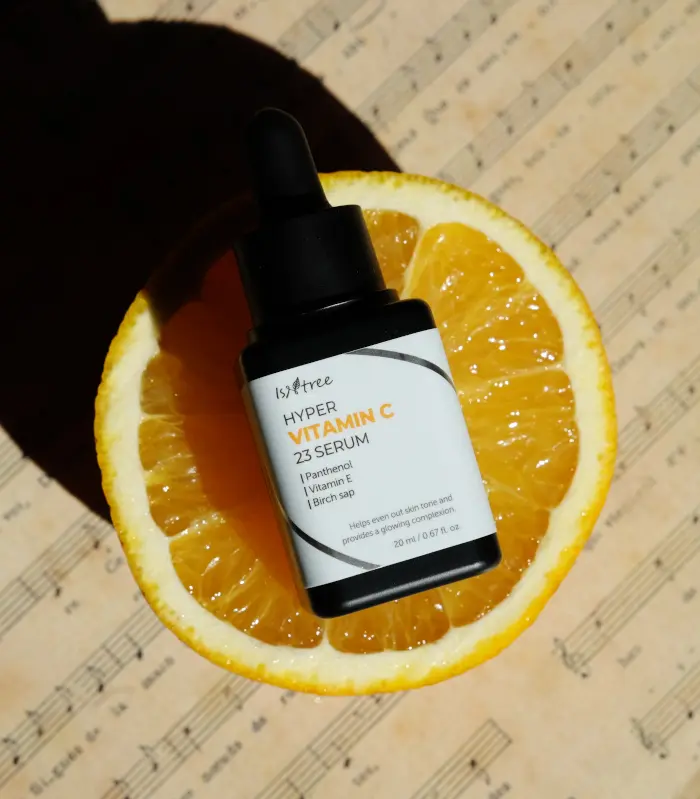
We Like
- Contains pure LAA Vitaminc C and Vitamin E;
- Contains effective humectants;
- Minimal ingredients list;
- Dark bottle;
- Essential oil-free and alcohol-free;
- Very affordable.
We Don’t Like
- Concentration is 23%, which is more than the optimal range;
- May not be suited for sensitive skin
- It doesn’t contain ferulic acid;
- Contains fragrance;
- It comes in a dropper bottle;
- Sticky.
As the name says, Isntree Hyper Vitamin C 23 Serum contains 23% L-Ascorbic Acid, a high percent of pure Vitamin C. The Isntree serum also contains vitamin E (Tocopherol in the ingredients list), which enhances the antioxidant effects of vitamin C. As mentioned, vitamins C and E protect the skin cells from sun damage by neutralizing the free radicals generated during UV exposure.
Like all of Isntree’s products, the Hyper Vitamin C 23 Serum is packed with great stuff. Besides Vitamin C, other star players in this serum are propanediol, Betaine, Polyglycerin-3, Urea, Birch Juice, Panthenol, and Dextrin. A special mention goes to Hydroxyethyl Urea, one of the most effective humectants in skincare but not often found in Korean cosmetics.
If those names don’t tell you anything, let me summarize: this serum is full of great brightening, moisturizing, antioxidant, and collagen-boosting ingredients that your skin will love.
The shelf life of this serum is two months as it contains L-Ascorbic Acid. The manufacturer recommends placing it in a cool, dark place away from direct sunlight to avoid oxidation. Also, read my fellow muse Emma’s in-depth review of the Isntree Hyper Vitamin C 23 Serum.
Price: $16-$20 / 0.67 fl. oz. (~$26 per ounce)
Isntree Hyper Vitamin C 23 Serum Ingredients List (last checked [current_year])
Water, Ascorbic Acid (23%), Propanediol, Betaine, 1,2-Hexanediol, Polyglycerin-3, Tromethamine, Ethyl Ascorbyl Ether, Hydroxyethyl Urea, Betula Platyphylla Japonica Juice, Ethylhexylglycerin, Adenosine, Disodium EDTA, Panthenol, Gardenia Florida Fruit Extract, Dextrin, Tocopherol.
Active Humectant/Moisturizer Herb Fragrance
7. Vegreen Intensive Vitamin C Ampoule
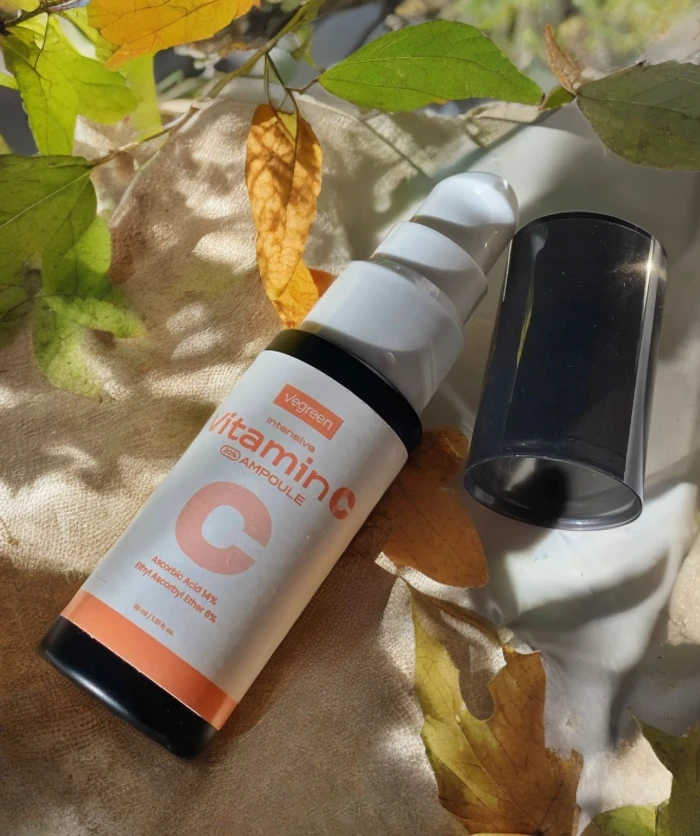
We Like
- 14% LAA + stable vitamin C derivative;
- Contains effective humectants;
- Minimal ingredients list;
- Dark pump bottle;
- Very affordable;
- Scent-less, essential oil-free and fragrance-free;
- Alcohol-free.
We Don’t Like
- It doesn’t contain ferulic acid or vitamin E;
- Not widely available at traditional K Beauty retailers.
Vegreen is a clean, green Korean skincare brand that takes consistent steps towards sustainability. Vegreen Intensive Vitamin C Ampoule is a pure vitamin C serum containing 14 L-Ascorbic Acid and 6% Ethyl Ascorbyl Ether, a highly stable vitamin C derivative.
This serum is enriched with three humectants (Propanediol, Pentylene Glycol, and Butylene Glycol) and three skincare superstar plant extracts, Green Tea, Centella Asiatica, and Bisabolol, providing anti-inflammatory, antioxidant benefits and soothing irritated skin.
This vitamin C serum is packaged in an opaque pump bottle I love, which prevents oxidation.
Price: $23-$24 / / 1.01 fl. oz. (~$24 per ounce)
Vegreen Intensive Vitamin C Ampoule Ingredients List (last checked [current_year])
Propanediol, Ascorbic Acid (14%), Pentylene Glycol, Butylene Glycol, Ethyl Ascorbyl Ether (6%), Camellia Sinensis Leaf Extract, Centella Asistica Extract, Alpha-Bisabobol, 1,2-He-Xanediol, Ethylhexylglycerin.
Active Humectant/Moisturizer Herb
8. Mizon Real Vitamin C Ampoule
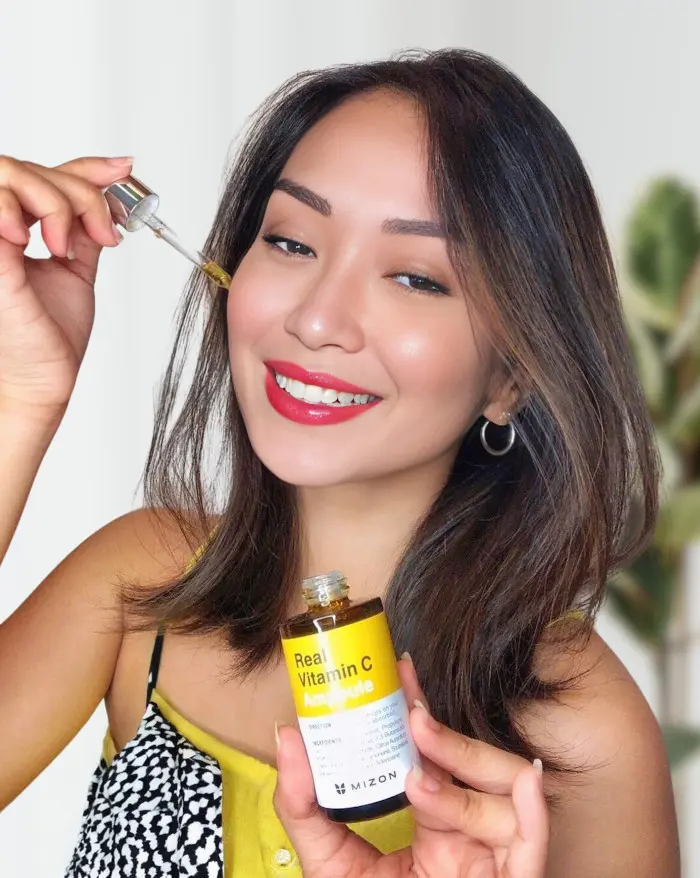
We Like
- It contains 19% pure LAA Vitaminc C, which is almost ideal;
- Doubles down on treating hyperpigmentation with arbutin;
- Fragrance-free and alcohol-free;
- Opaque bottle helps prevent oxidation.
We Don’t Like
- May not be suited for sensitive skin
- EOs;
- It does not contain vitamin E or ferulic acid;
- Dropper bottle.
Mizon Real Vitamin C Ampoule doubles up its brightening powers with Arbutin. This serum comes in a dark brown glass dropper bottle. The bottle comes sealed with a screw-top lid, and the dropper is packaged separately to prevent any oxidation from occurring before the product reaches you.
When using this, my skin is thriving. I noticed dramatic lightning of my acne scars.
Price: $30 / 1.01 fl. oz. (~$29 per ounce)
Mizon Real Vitamin C Ampoule Ingredients list (last checked [current_year])
Propanediol, Propylene Carbonate, Ascorbic Acid (19%), 2,3-butanediol, Dimethyl Isosorbide, Arbutin, Orange Peel Oil, Limonene, Scutellaria Baicalensis Root Extract, Adenosine.
Active Herbs Humectant/Moisturizing
9. Medicube Deep Vita C Ampoule Set
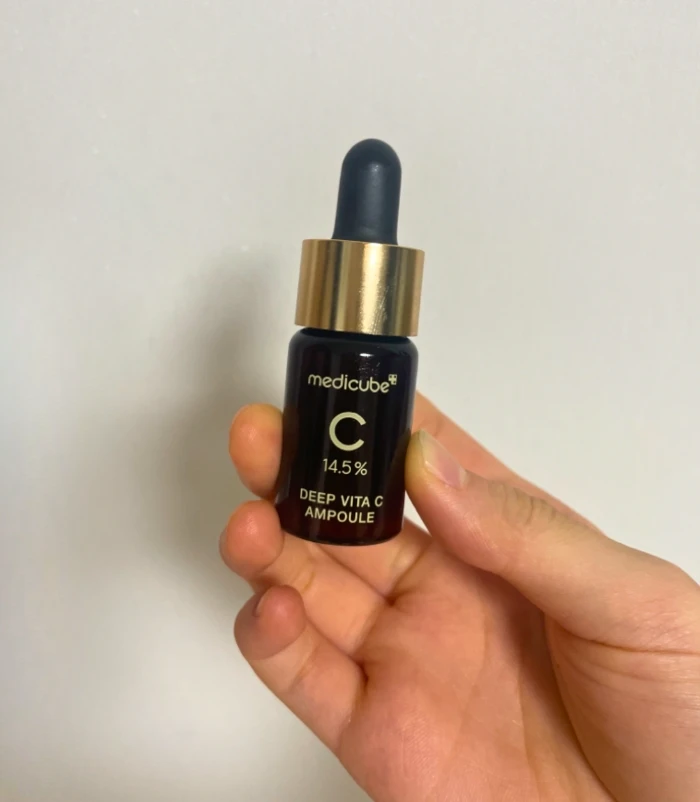
We Like
- 14.5% L Ascorbic Acid helps to brighten the complexion and reduce the appearance of dullness;
- Regular use can help to even out skin tone and reduce the appearance of dark spots and hyperpigmentation;
- Effective humectants provide intense hydration, leaving the skin moisturized and plump;
- Packed in 3 dark bottles to prevent oxidation;
- Fragrance-free and alcohol-free;
- Cruelty-free.
We Don’t Like
- It doesn’t contain ferulic acid;
- Unpleasant smell;
- EOs.
The Medicube Deep Vita C Ampoule Set is a Korean water-based vitamin C serum designed to brighten and revitalize the complexion. It is formulated with 14.5% ascorbic acid. What’s special about it is its triple melanin care:
- Treats current melanin discoloration
- It treats latent melanin discoloration – it also cares for the deeper layers.
- Strengthens melanin resistance
Additionally, the Medicube Deep Vita C Ampoule has some serious antioxidant power. It includes several antioxidants, such as mung bean, grapefruit, prickly pear, camu camu, carrots, Kakadu plum, turmeric, and birch trees. In other words, the stuff in this serum will help repair and prevent sun and pollution damage.
Not only is this serum a nice skin-brightener, but it will also help hydrate your skin and rebuild the all-important skin barrier. The texture of this vitamin C is creamy and absorbs well.
I love that the Medicube Deep Vita C Ampoule Set comes in three mini bottles. The dark containers protect the formulation from light so the vitamin C doesn’t get oxidized or loose its potency.
I store all of them in the fridge and open one only once I have finished another one. This further helps prevent oxidation. I have been enjoying this vitamin C serum as it looks fresh and feels fresh.
It does have a bad smell to it, but the smell doesn’t last long.
Price: $33-$44 / / 1.01 fl. oz. (~$38 per ounce)
Water, Ascorbic Acid (145,000ppm), Dicaprylyl Carbonate, Propanediol, Dipropylene Glycol, Butylene Glycol, Phenyl Trimethicone, Diisostearyl Malate, Hydrogenated Poly(C6-14 Olefin), 1,2-Hexanediol, Polyglyceryl-6 Stearate, Polyglyceryl-3 Distearate, Ethylhexyl Methoxycinnamate, C12-14 Alketh-12, Sodium Hydroxide, Glyceryl Stearate, Dimethicone, Bisabolol, Sodium Stearoyl Glutamate, Polyacrylate Crosspolymer-6, Pullulan, Allantoin, Tocopherol, Ethylhexylglycerin, Xanthan Gum, Sodium Hyaluronate, Panthenol, Glyceryl Stearate Citrate, Glutathione, Polyglyceryl-6 Behenate, Citrus Nobilis (Mandarin Orange) Peel Extract, Lycopodium Clavatum Extract, Equisetum Arvense Extract, Beta-Glucan, Cupressus Sempervirens Leaf/Stem Extract, Adenosine, Hedera Helix (Ivy) Leaf/Stem Extract, Citrus Aurantium Bergamia (Bergamot) Fruit Oil, Ribes Nigrum (Black Currant) Leaf Extract, Litsea Cubeba Fruit Oil, Disodium EDTA, Glycerin, t-Butyl Alcohol, Sorbitol, Caprylic/Capric Triglyceride, Hippophae Rhamnoides Water, Helianthus Annuus (Sunflower) Seed Oil, Sucrose Stearate, Beta-Carotene, Hydroxyethylcellulose, Arginine, Microcrystalline Cellulose, Ubiquinone, Cellulose Gum, Terminalia Ferdinandiana Fruit Extract, Myrciaria Dubia Fruit Extract, Saccharide Hydrolysate, Hesperidin, Fructooligosaccharides, Ergothioneine
Active Humectant/Moisturizer Herb Brightening Essential Oils
Can I Use Vitamin C and Niacinamide Together?
So, I’ve already told you about the benefits of vitamin C. Niacinamide is another ingredient with loads of skin benefits. It is a skin-restoring ingredient that can visibly improve the appearance of enlarged pores, fine lines, and dull skin.
Therefore, it’s a common question: Can you use vitamin C and niacinamide in your skincare routine? There are two myths floating around on the internet that these two ingredients should not be mixed:
- Using vitamin C and niacinamide together neutralizes the effectiveness of both ingredients.
- You might create nicotinic acid that leads to skin redness when used together.
Can I Use Niacinamide with Vitamin C?
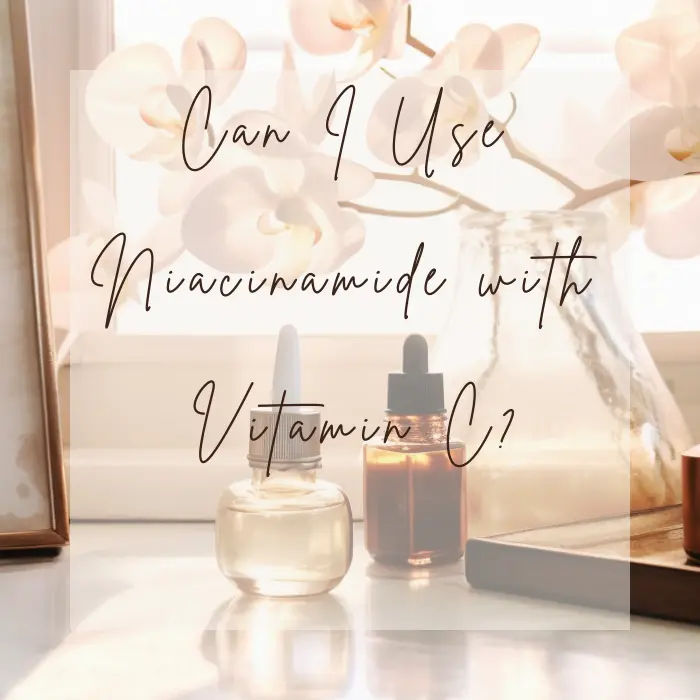
Long story short: some old research from the 1960s was misinterpreted. You can use vitamin C and niacinamide together. Research has shown that it won’t lead to skin problems, and combining the two ingredients produces many benefits.
Can I Use Vitamin C and Retinol/Retinoids Together?
Retinol (a form of vitamin A) is an ingredient that provides many skincare benefits, including promoting skin renewal and enhancing collagen production. It is also a powerhouse ingredient for fading sun damage. You can read more about treating hyperpigmentation with retinol in this How to Treat Hyperpigmentation Guide. Also, I’m happy to inform you that more Korean companies are developing retinol serums. Here are our editor’s top picks.
The above benefits make it a trendy anti-aging ingredient for women over 30. But can you combine retinol with your vitamin C serum? Again, much misinformation is floating around the internet, which says that the two ingredients should not be combined mainly due to their differing pH levels.
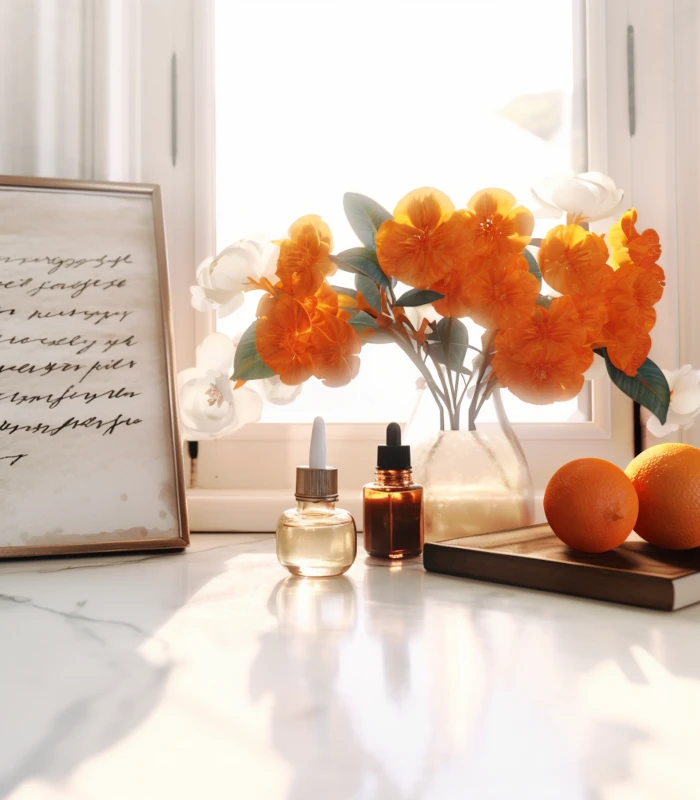
However, research has again busted this myth. We know now that acidity doesn’t deactivate retinol. Therefore, vitamin C and retinol can be used together. Researchers found that a combination of antioxidants provides optimal results as they work to boost each other’s effectiveness. Vitamin C was found to help retinol work better by stabilizing it and, in turn, extending its effectiveness.
[Editor’s note: Retinol shouldn’t be used by those who are pregnant, considering getting pregnant, or nursing. Please consult with your doctor before use.]
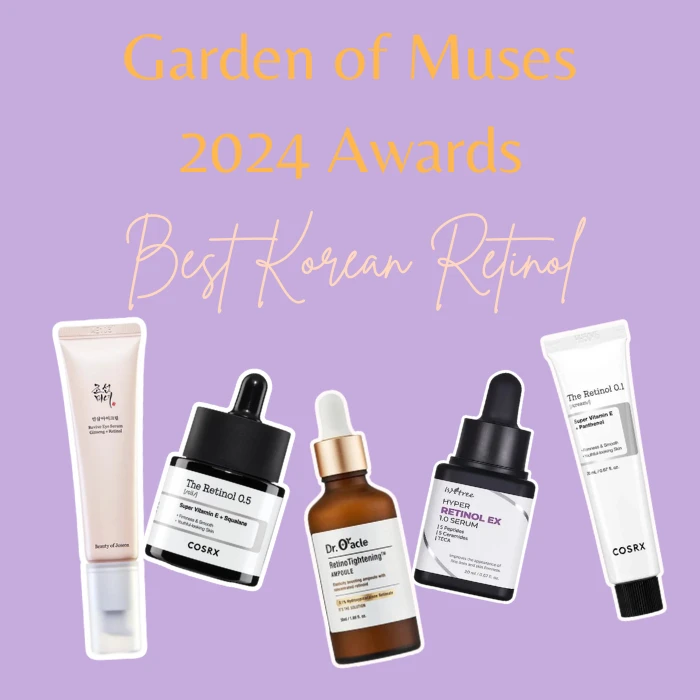
The two are paired in many products, including the famous Kate Somerville+Retinol Vita C Power Serum*, including hyaluronic acid to stave off dryness.
If you have sensitive skin, you may want to consider alternating your retinol and vitamin C applications, or you could include a waiting time in your routine. In this case, you would apply your vitamin C serum first, wait 30 minutes until your skin returns to its normal acidity (pH of approximately 5.5), and then follow up with a retinoid.
Another way to play it extra safe would be to use a serum containing a vitamin C derivative instead of ascorbic acid.
Due to its photo-protective effects, I prefer using vitamin C serum in the AM. Also, retinol is unstable in light, so I like using it in the PM.
Bottom Line
Vitamin C is a powerful ingredient to include in your skincare routine if you want to fade sun damage or post-inflammatory hyperpigmentation following acne breakouts.
There are a lot of vitamin C serums on the market, but my tip is to look for a serum packaged in a dark glass bottle to prevent the product from oxidizing too soon. The higher the concentration of vitamin C in the serum, the better, too (20% is the optimal amount).
Also, look for serums that include other beneficial ingredients, such as vitamin E and ferulic acid, which optimize the effectiveness of vitamin C. Research has also shown that using niacinamide and retinol with vitamin C is okay, although myths say otherwise.
Lastly, don’t waste those valuable drops of your vitamin C serum by forgetting to apply sunscreen daily.
